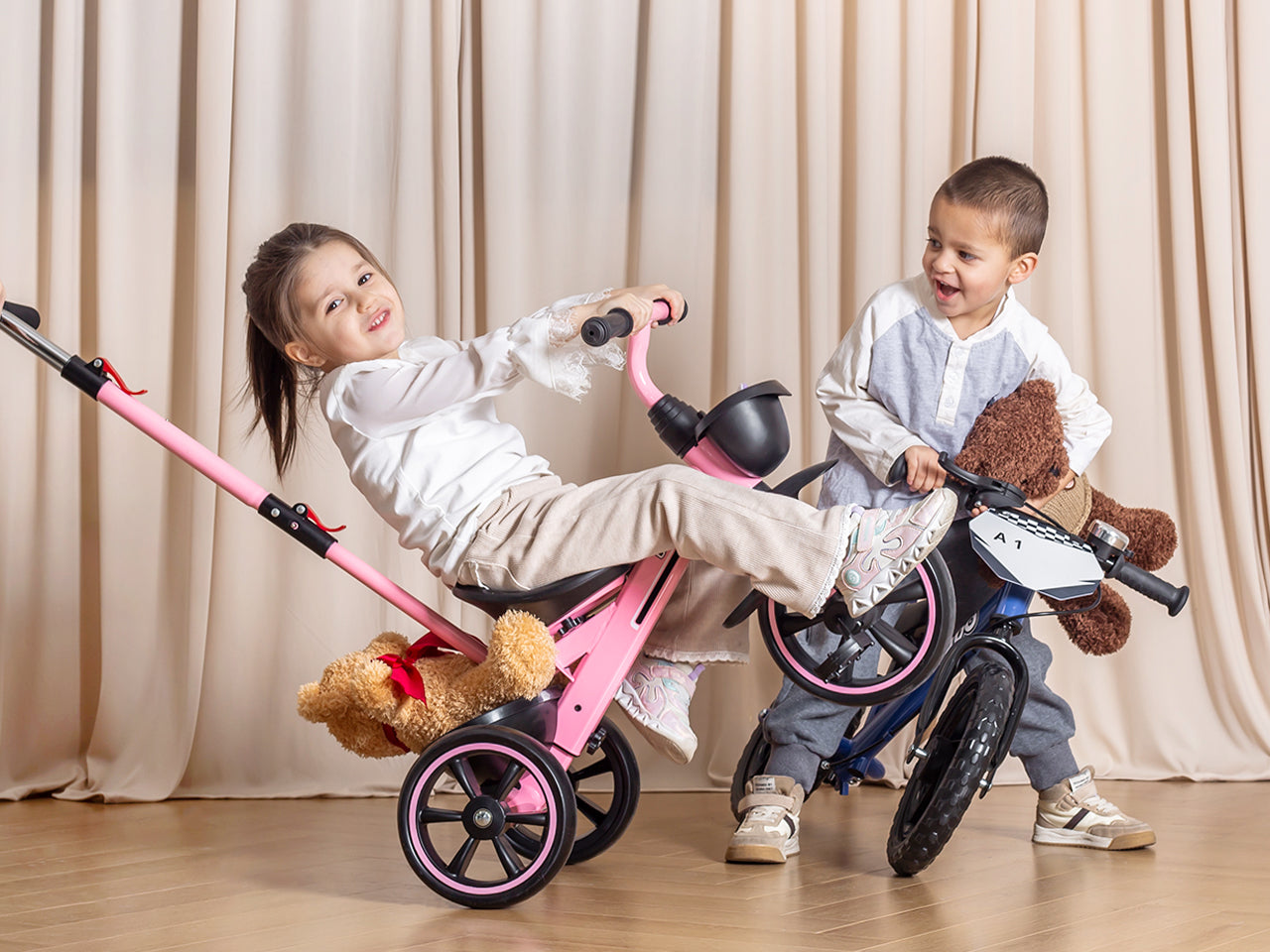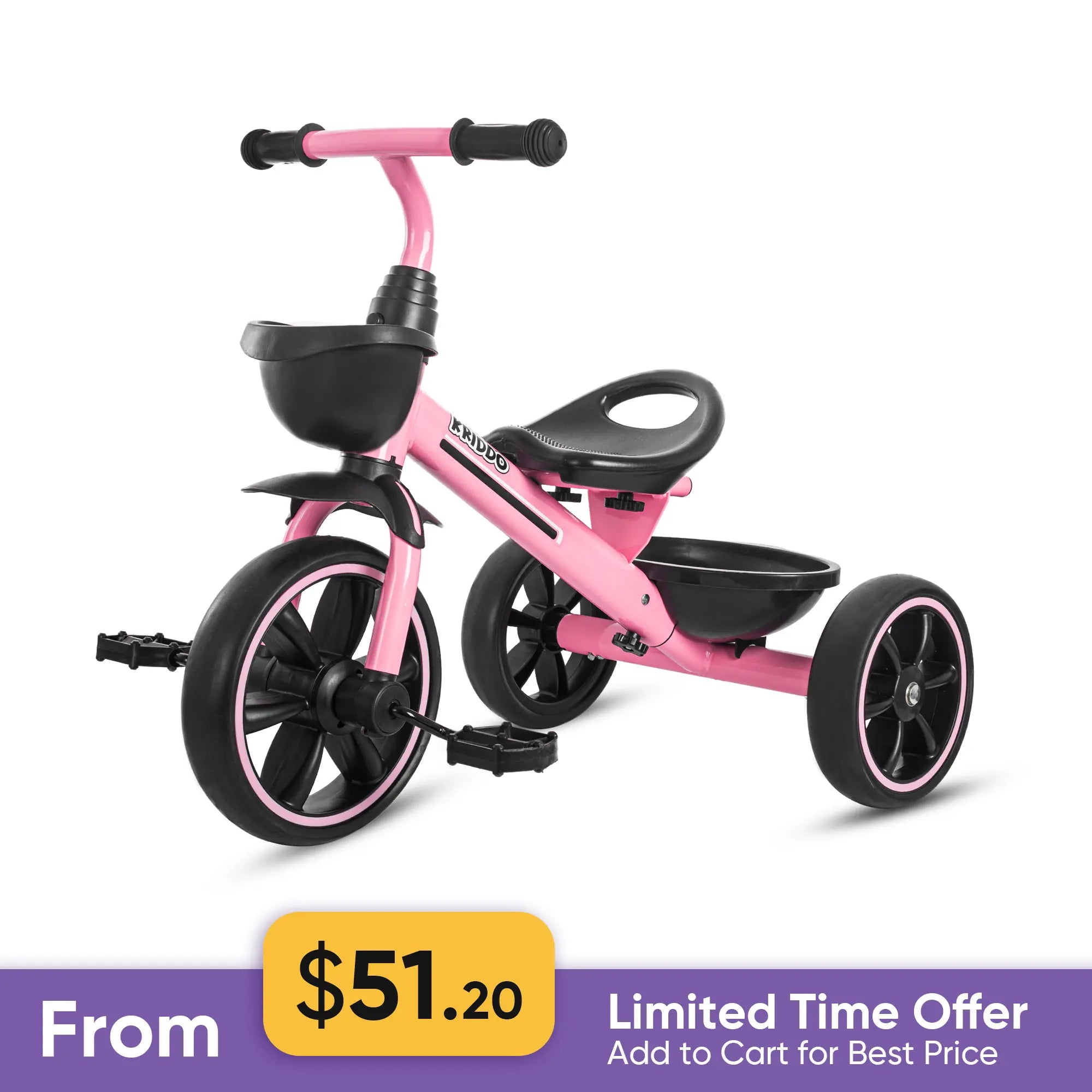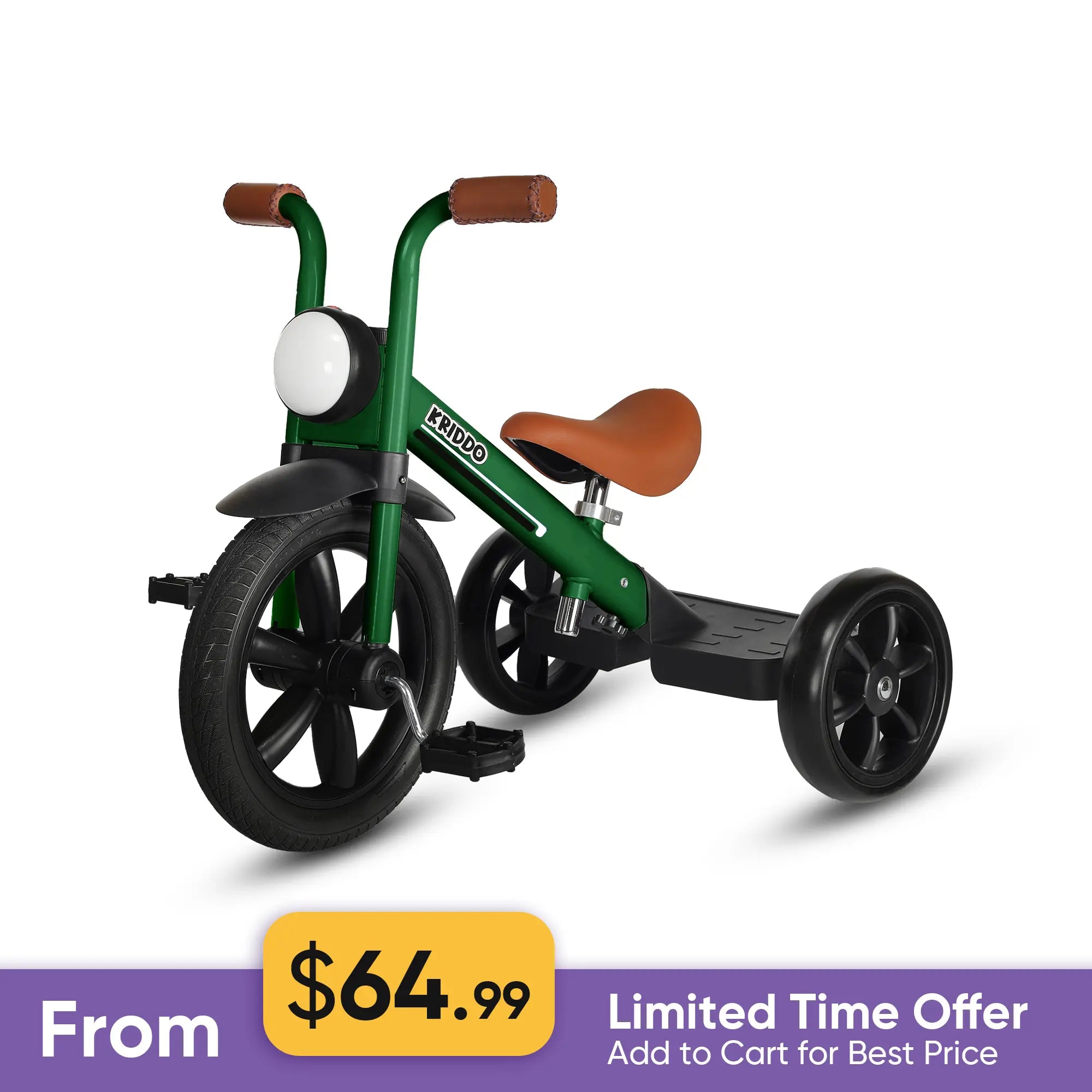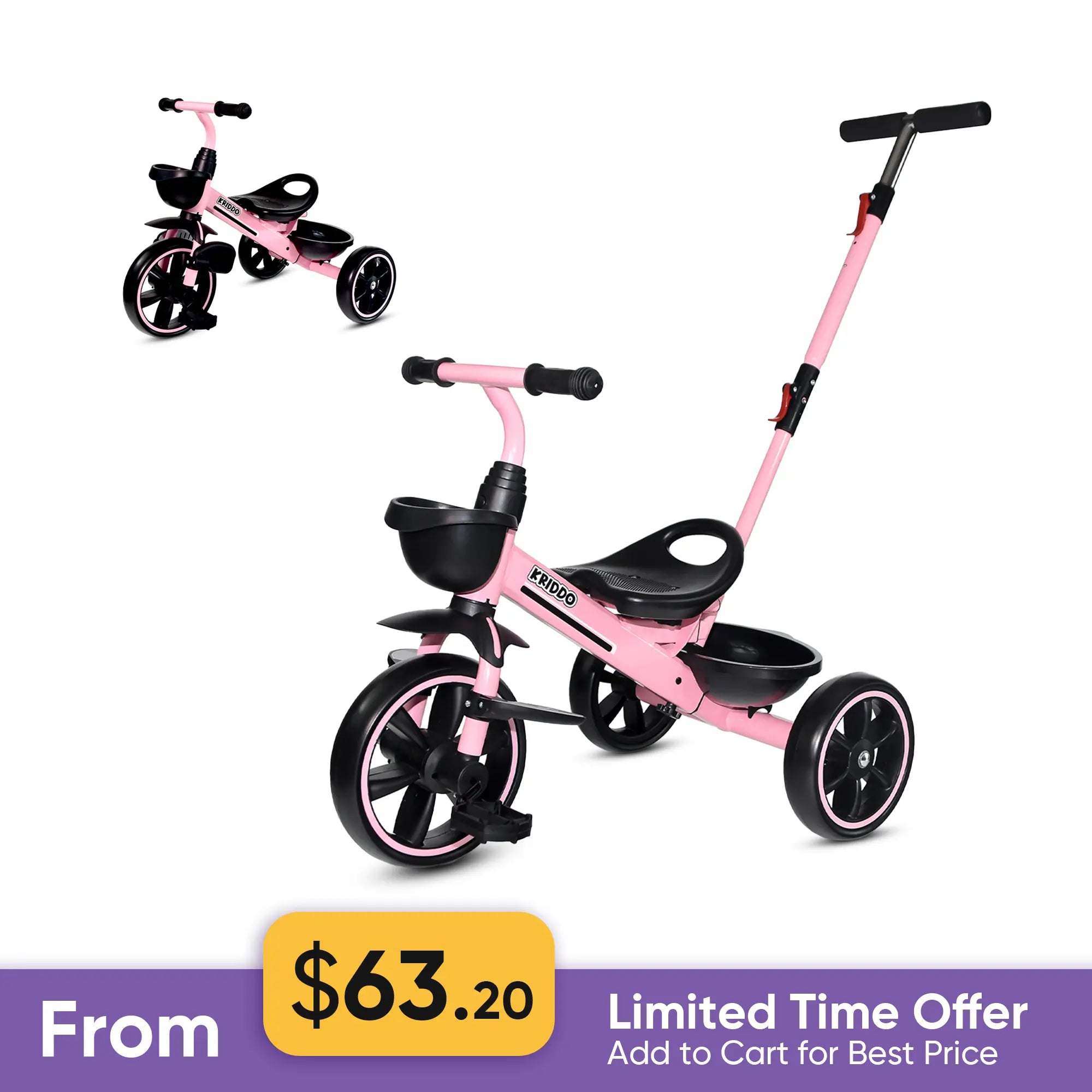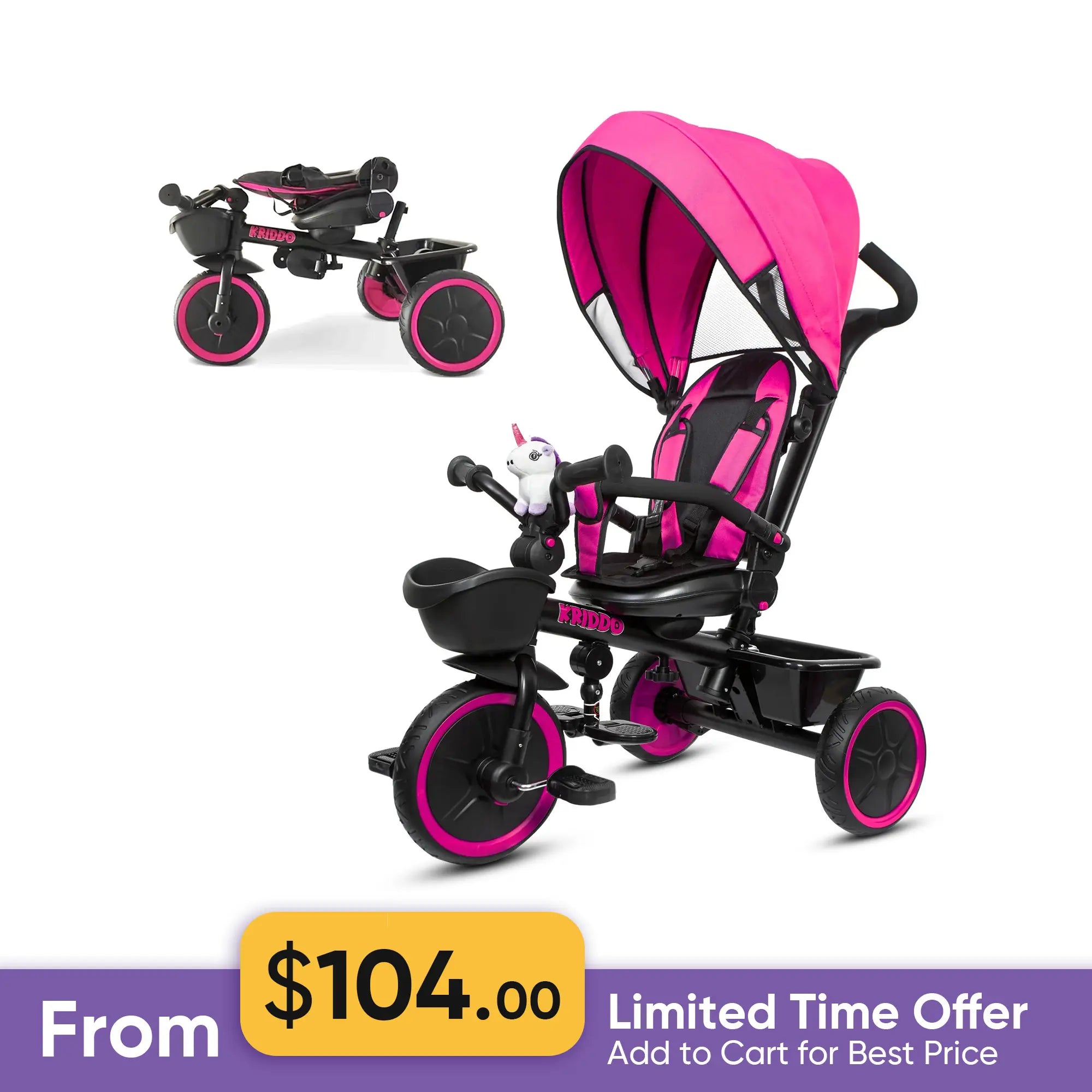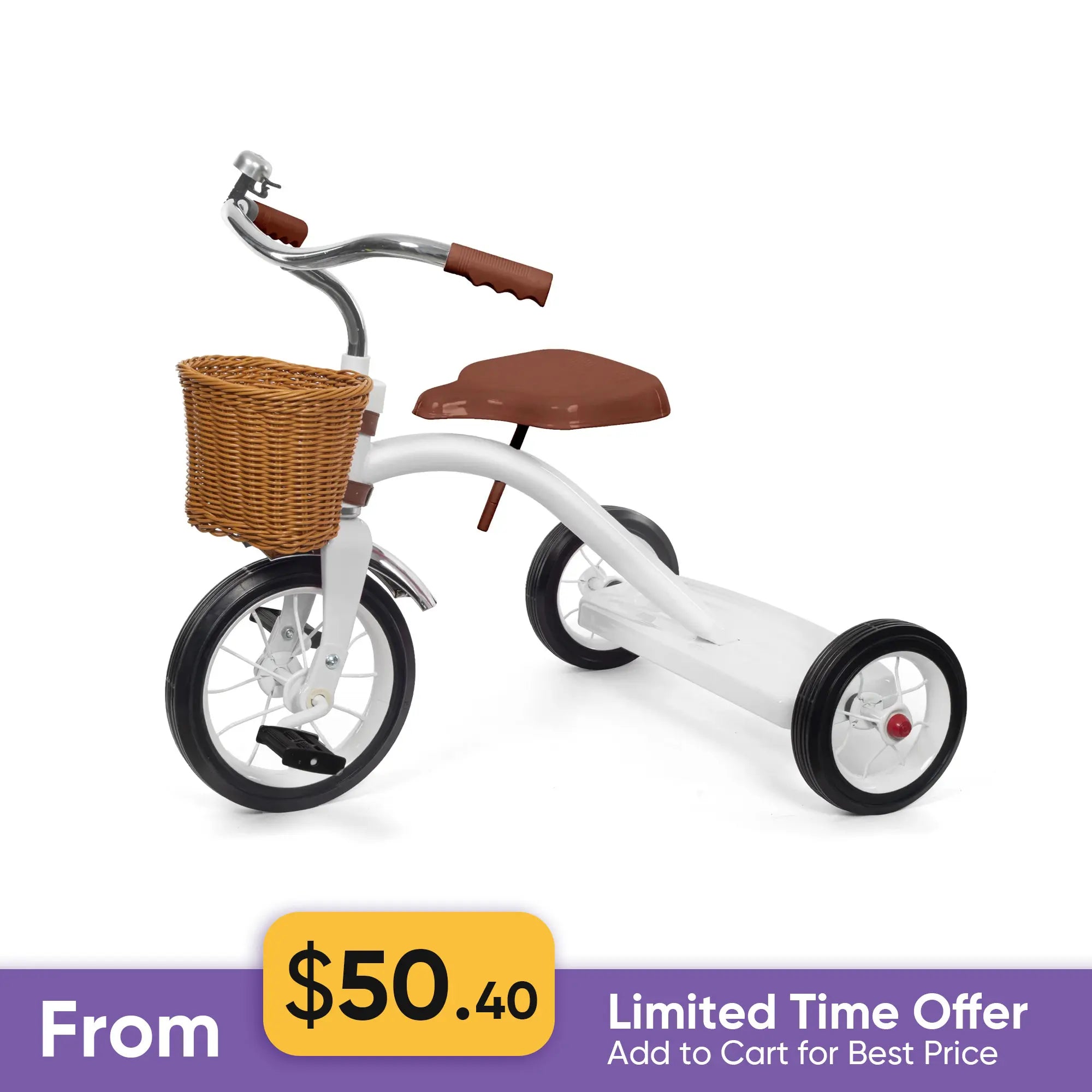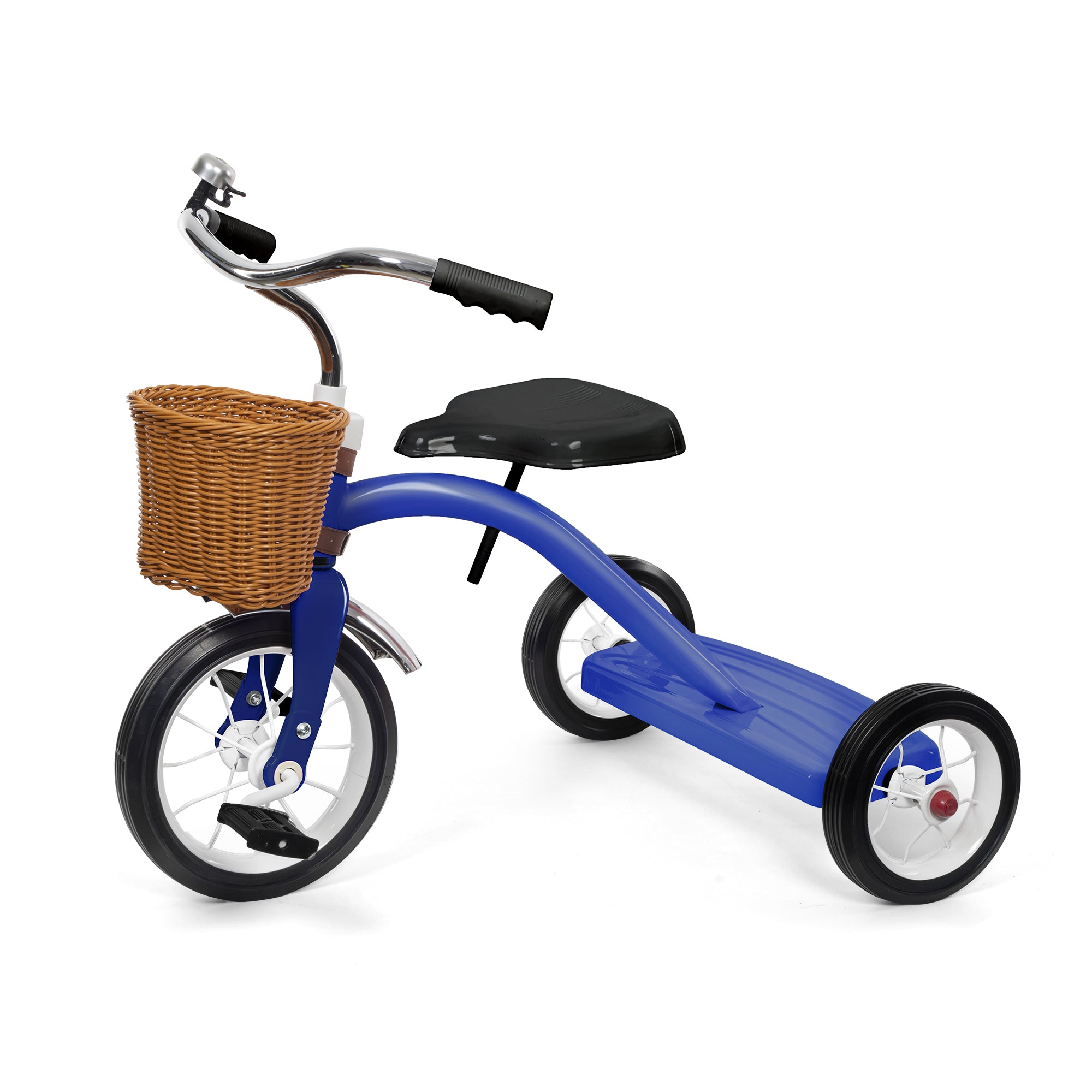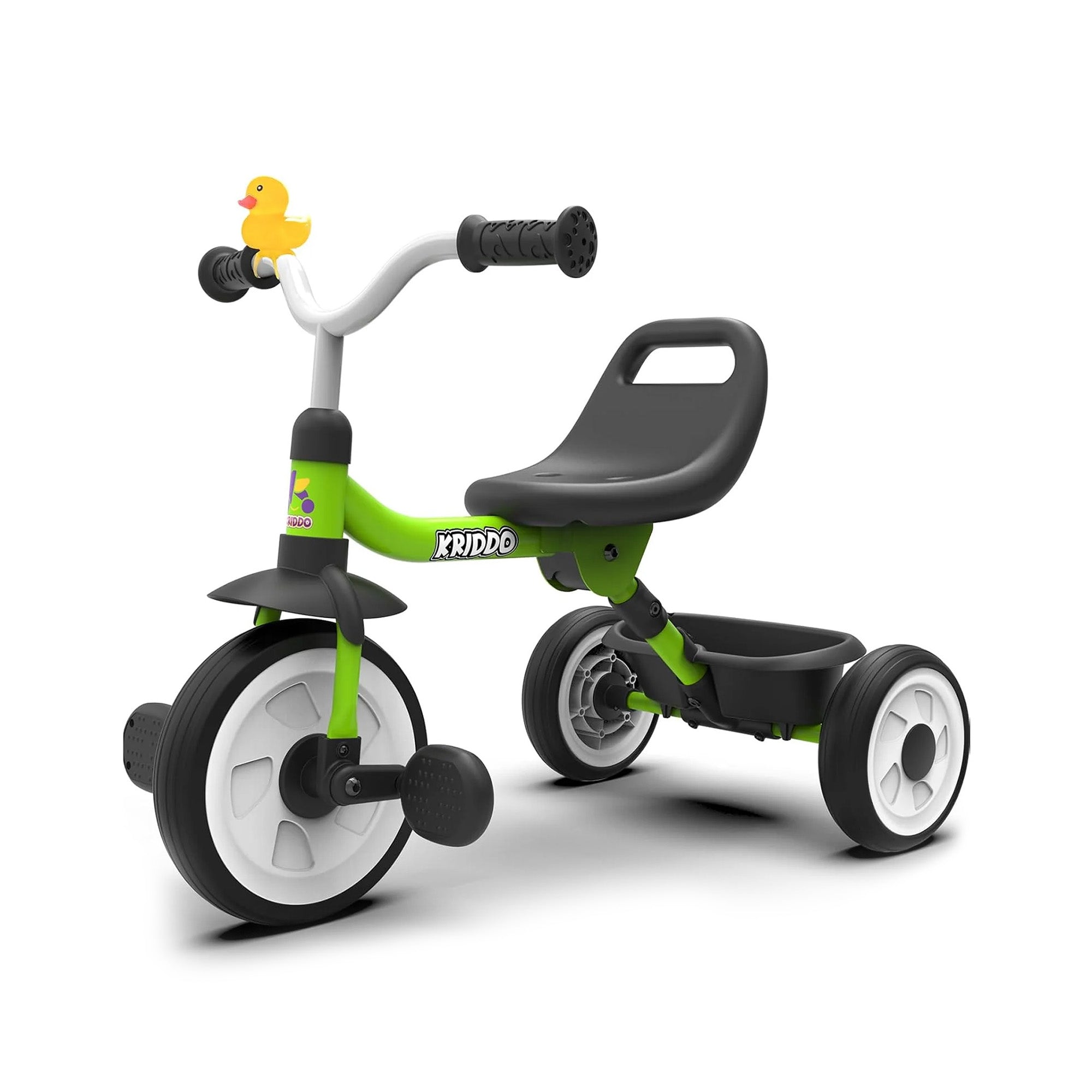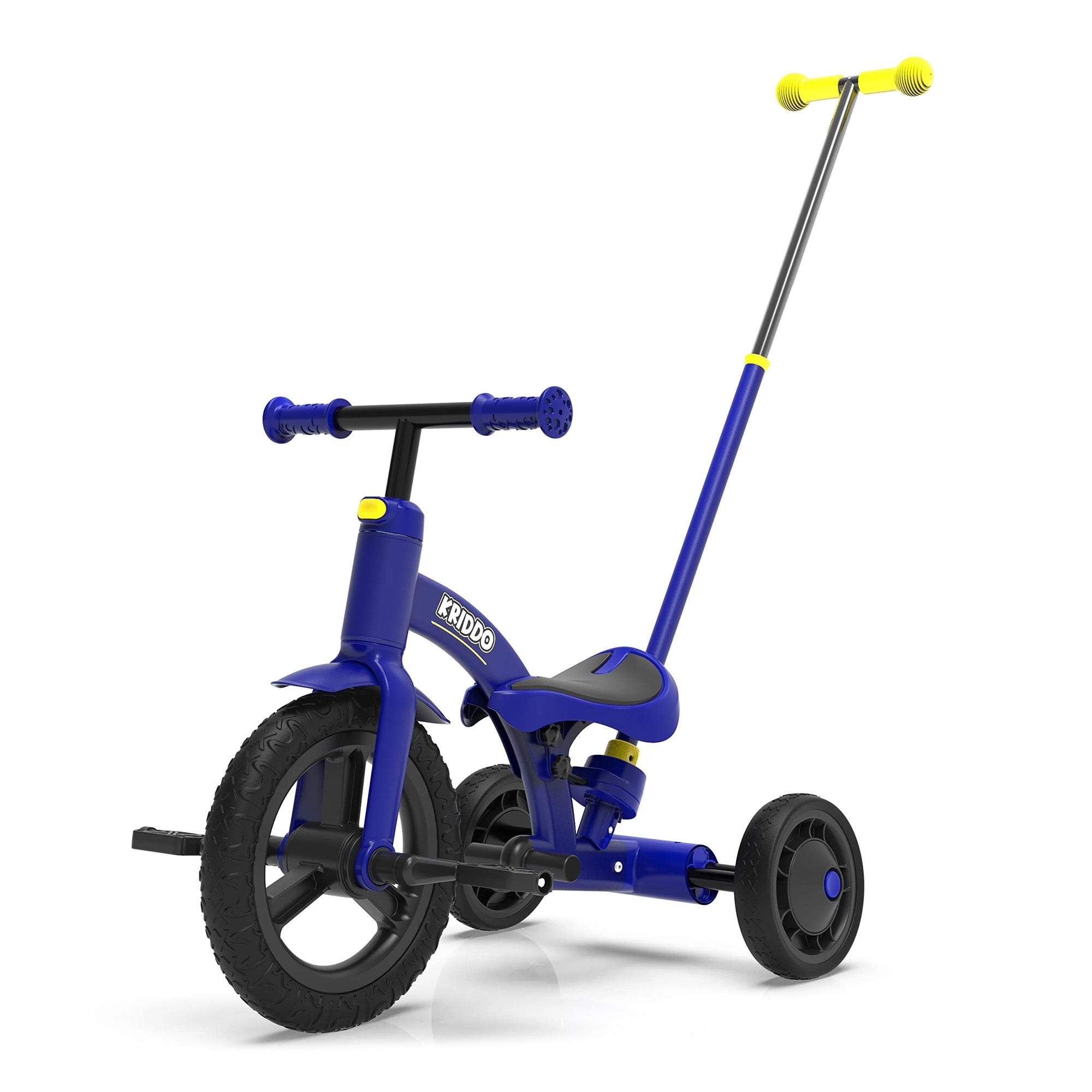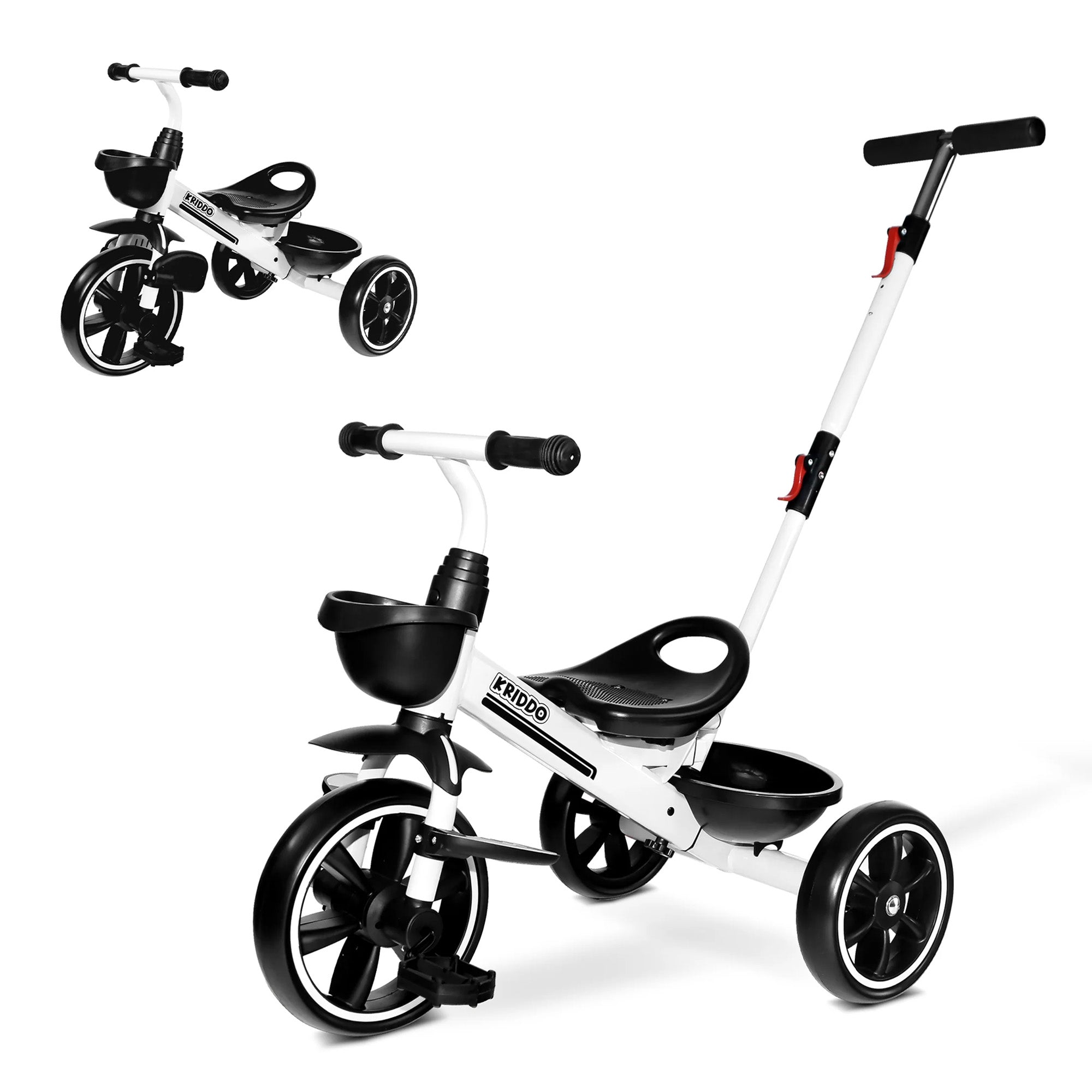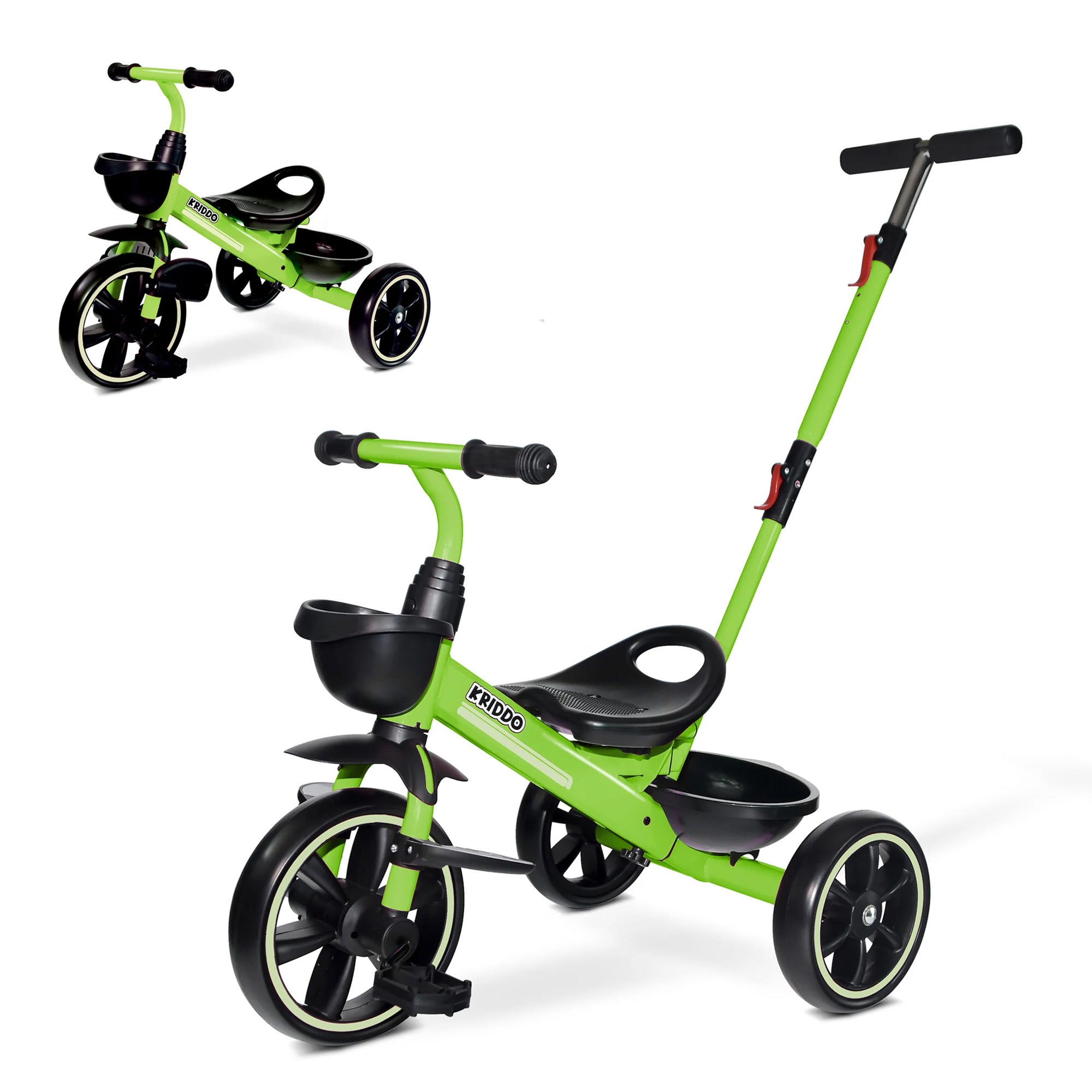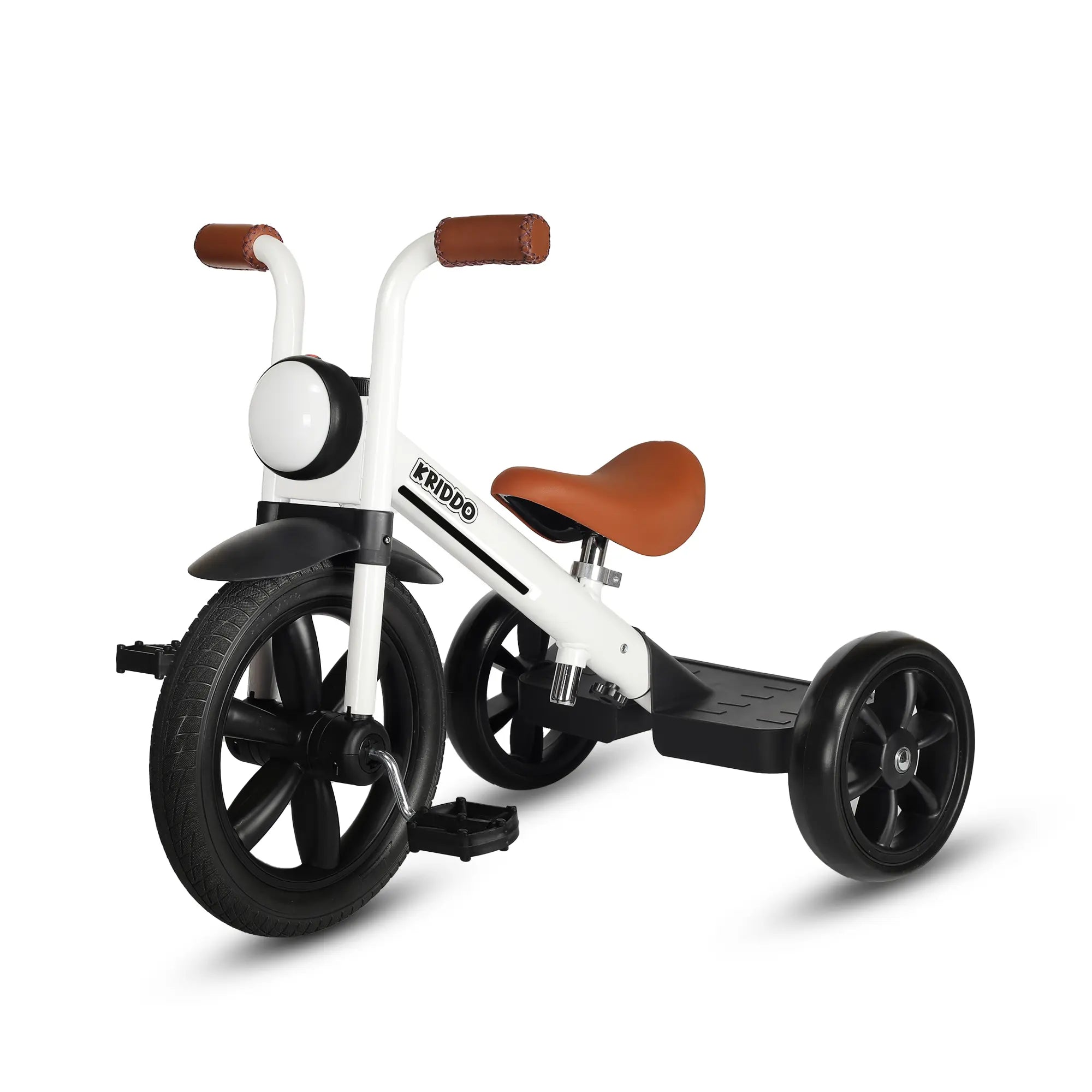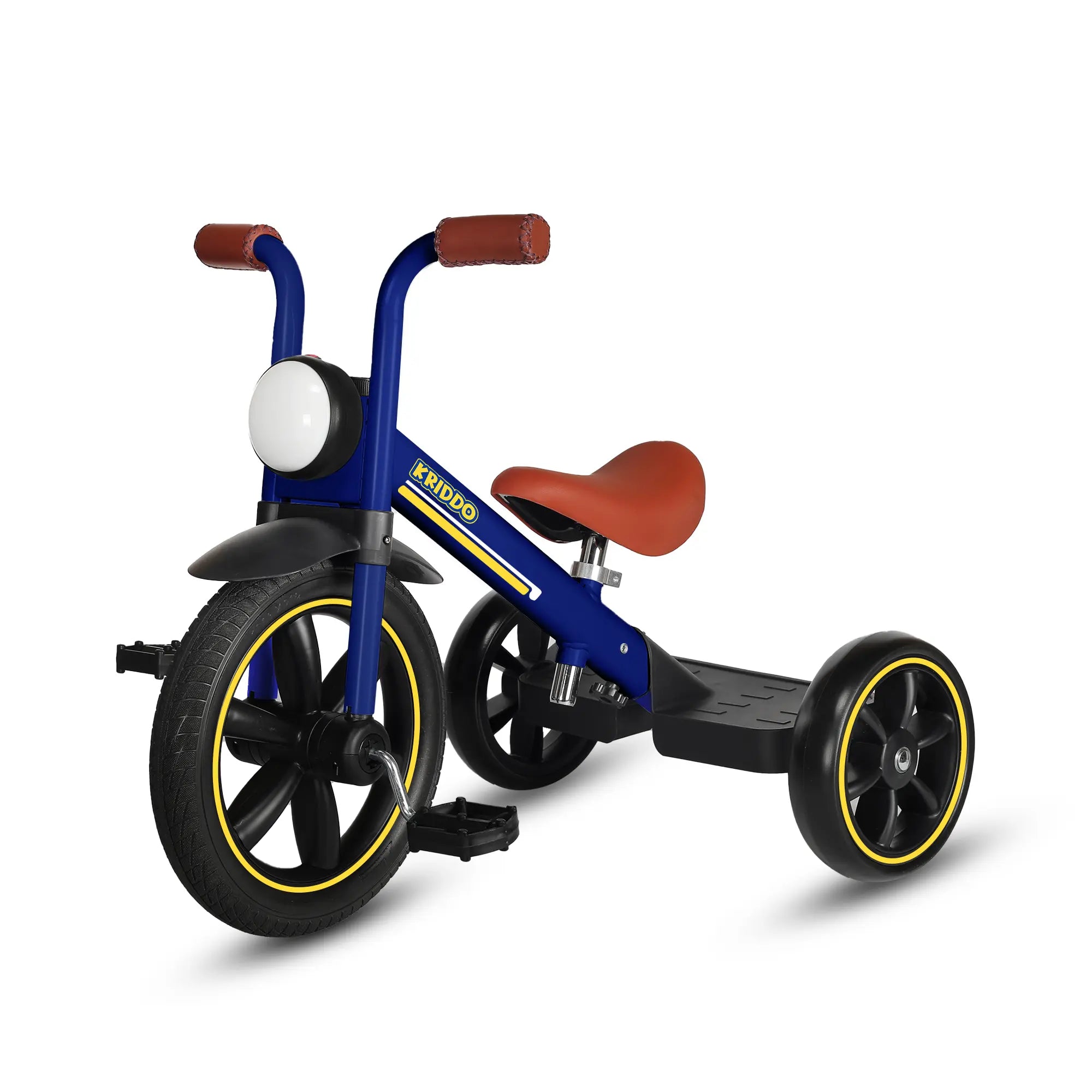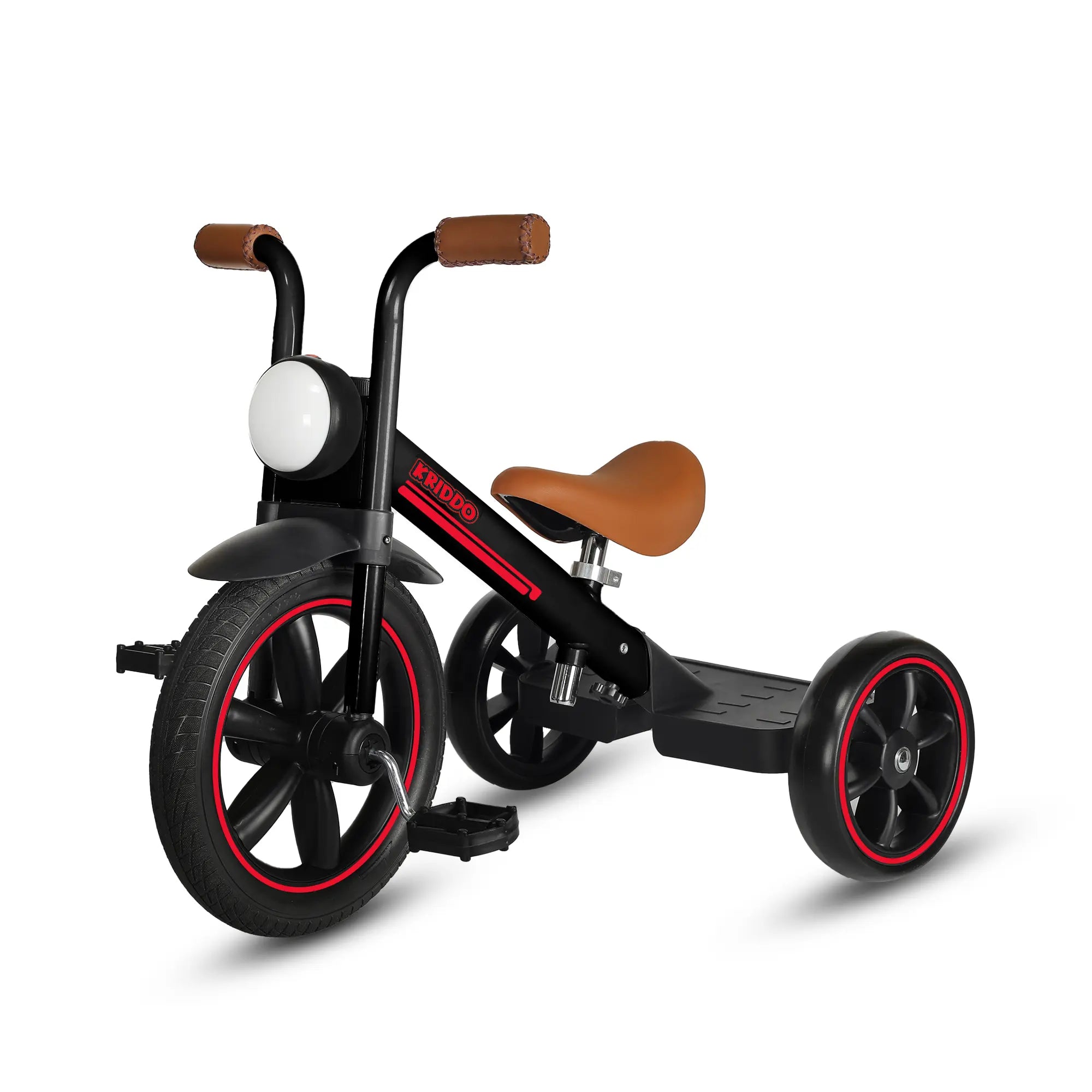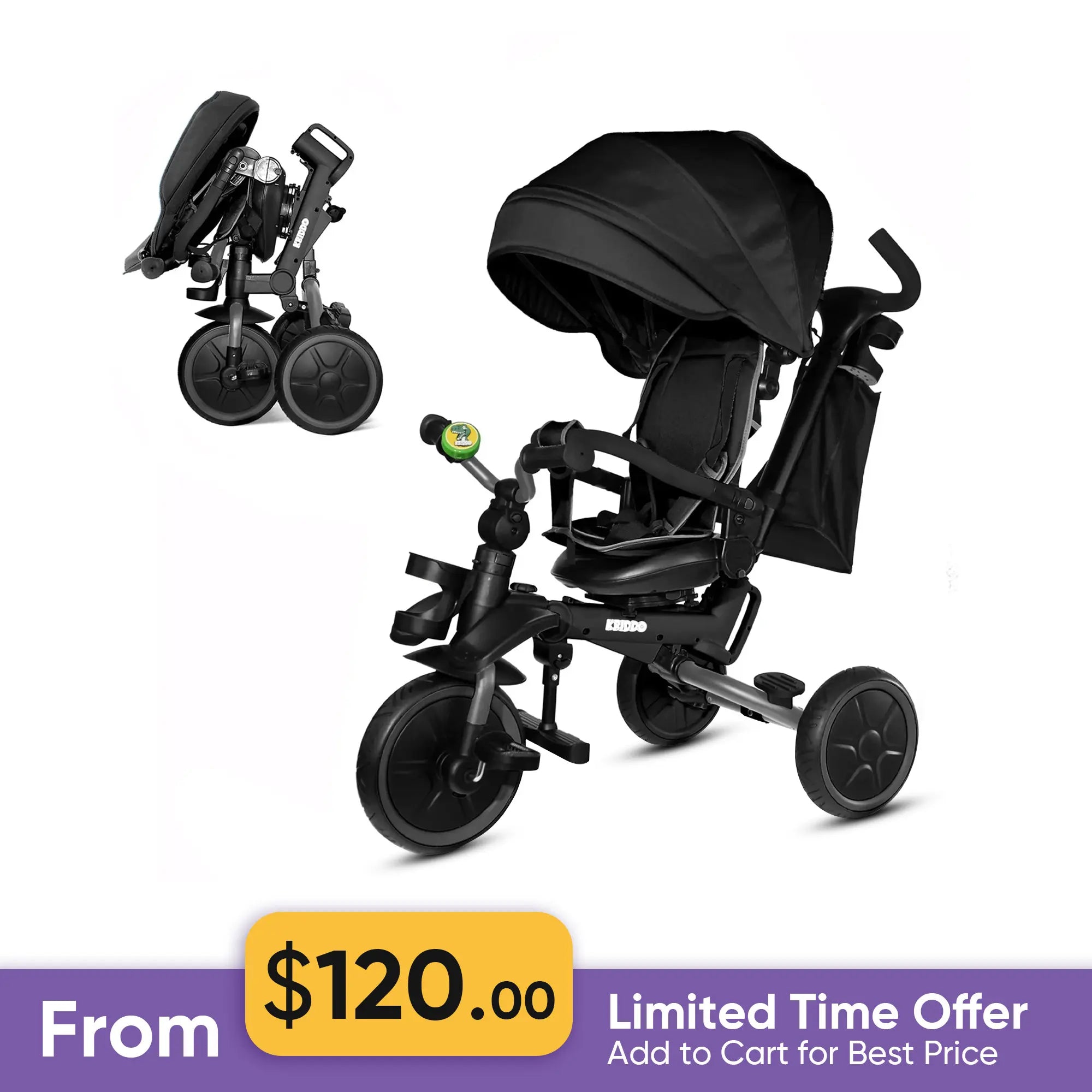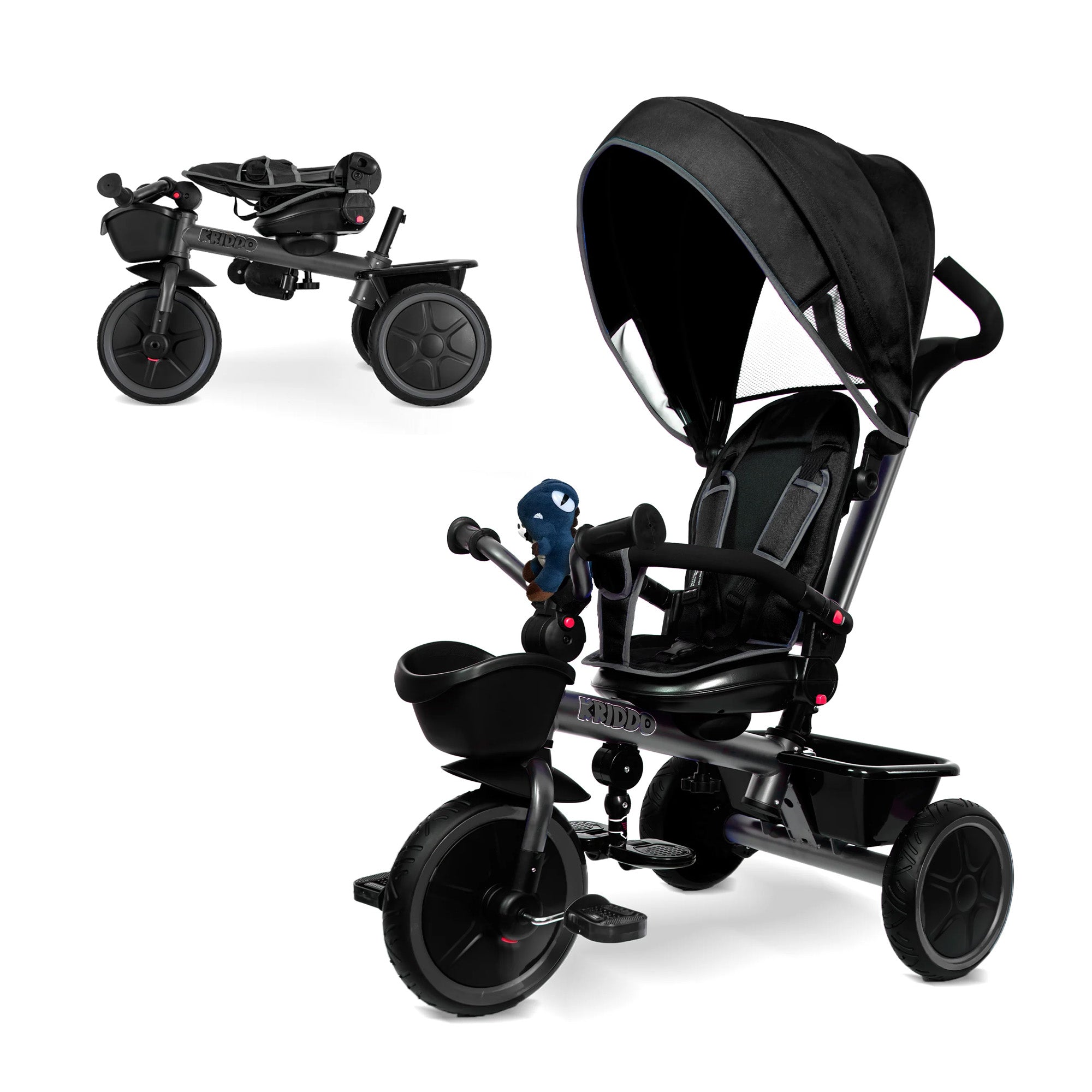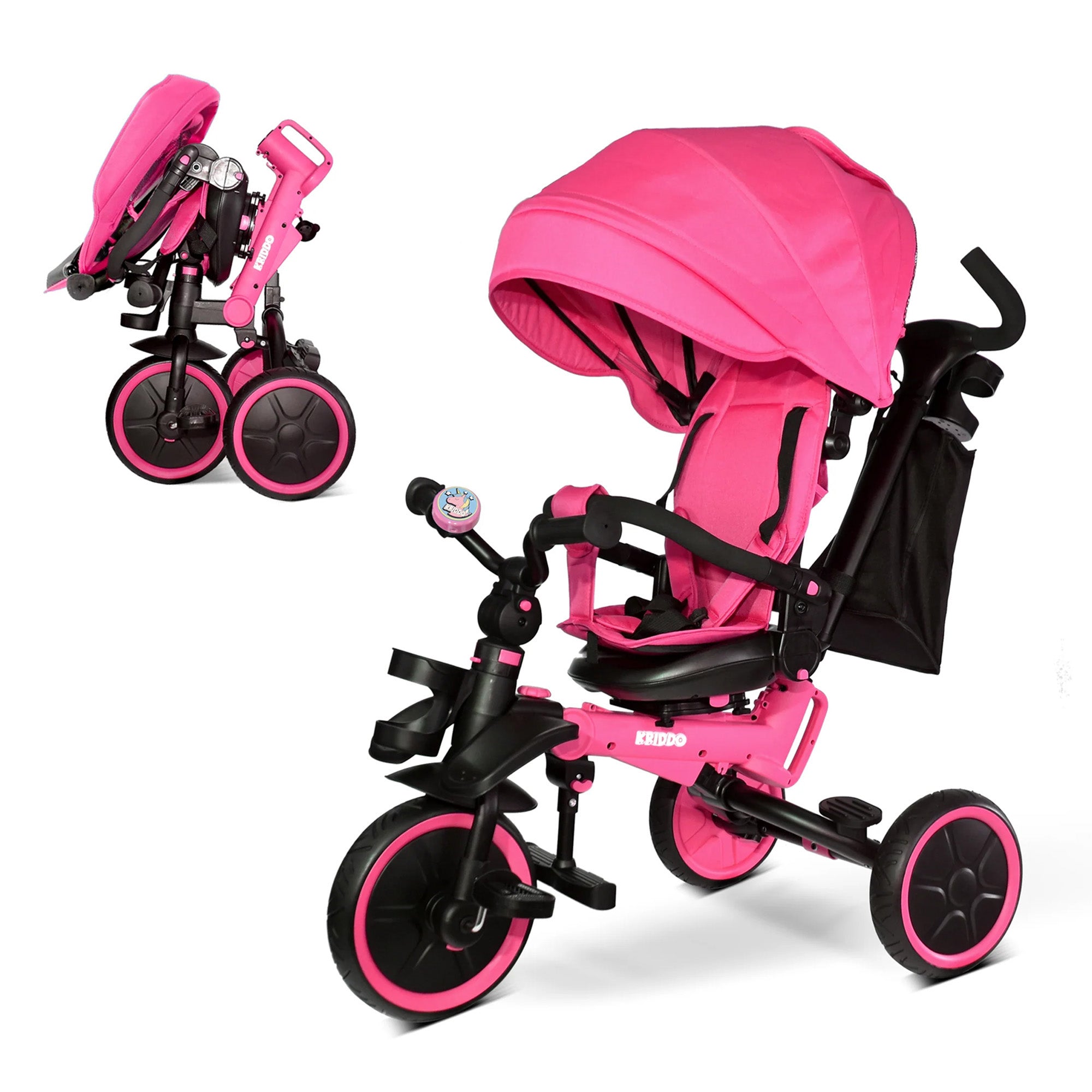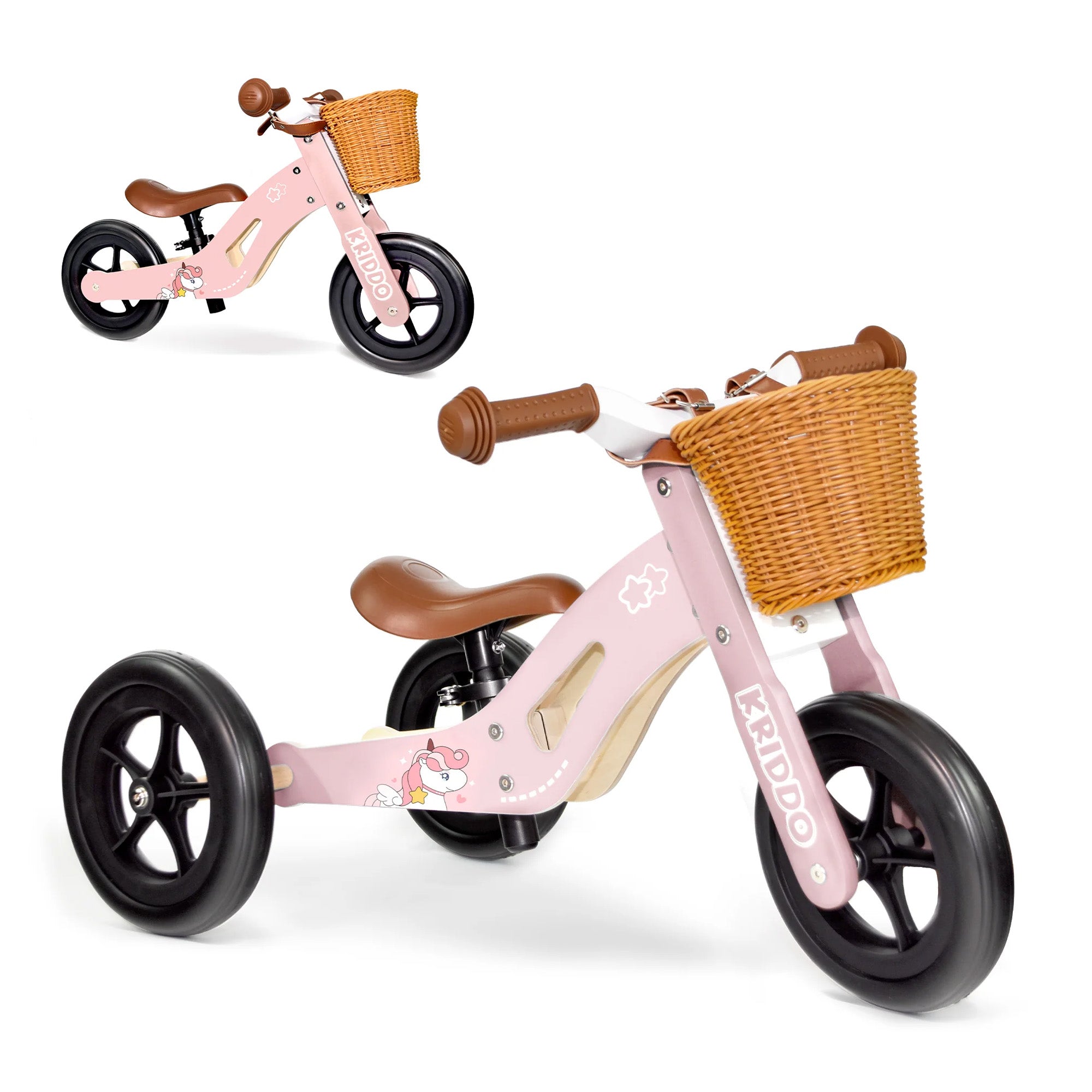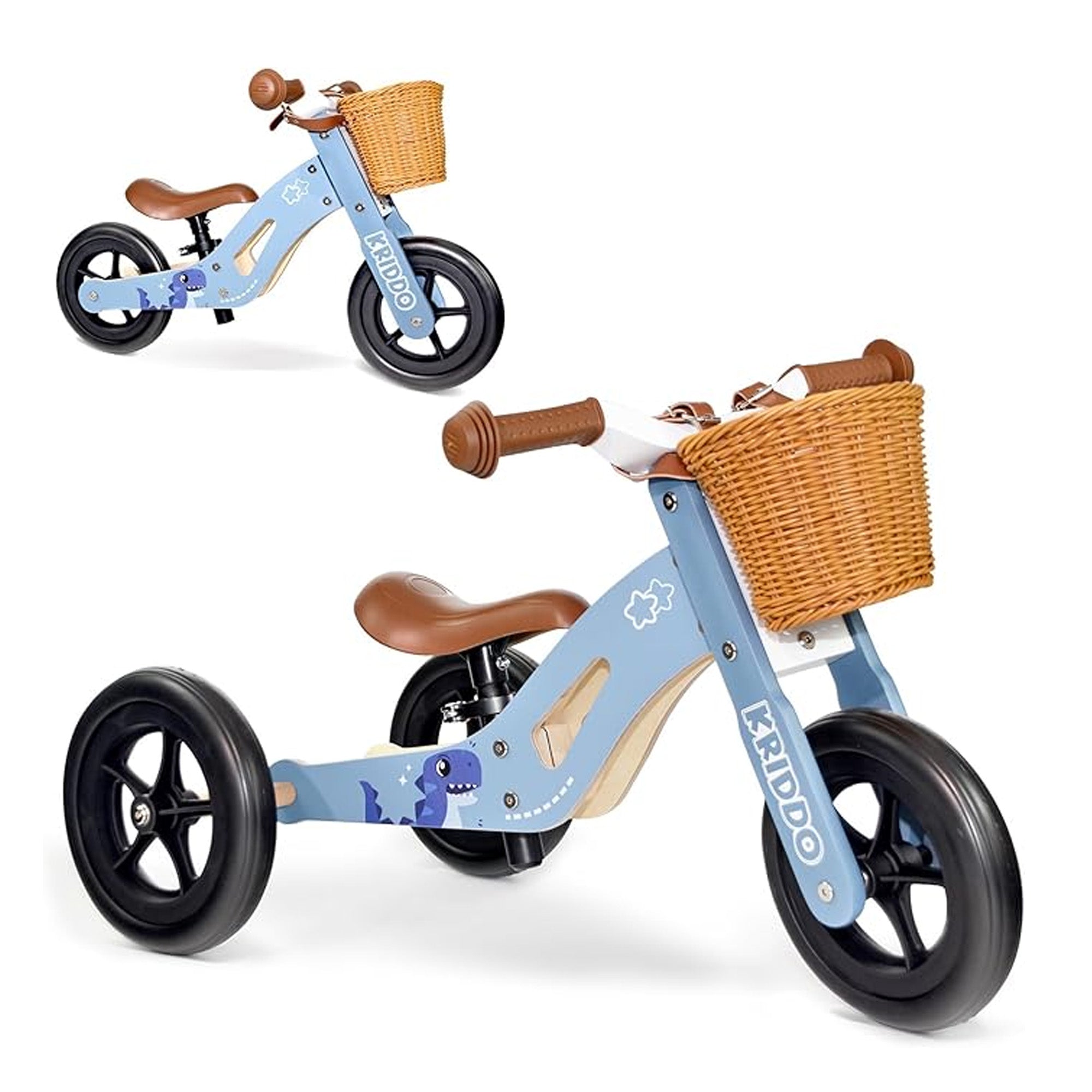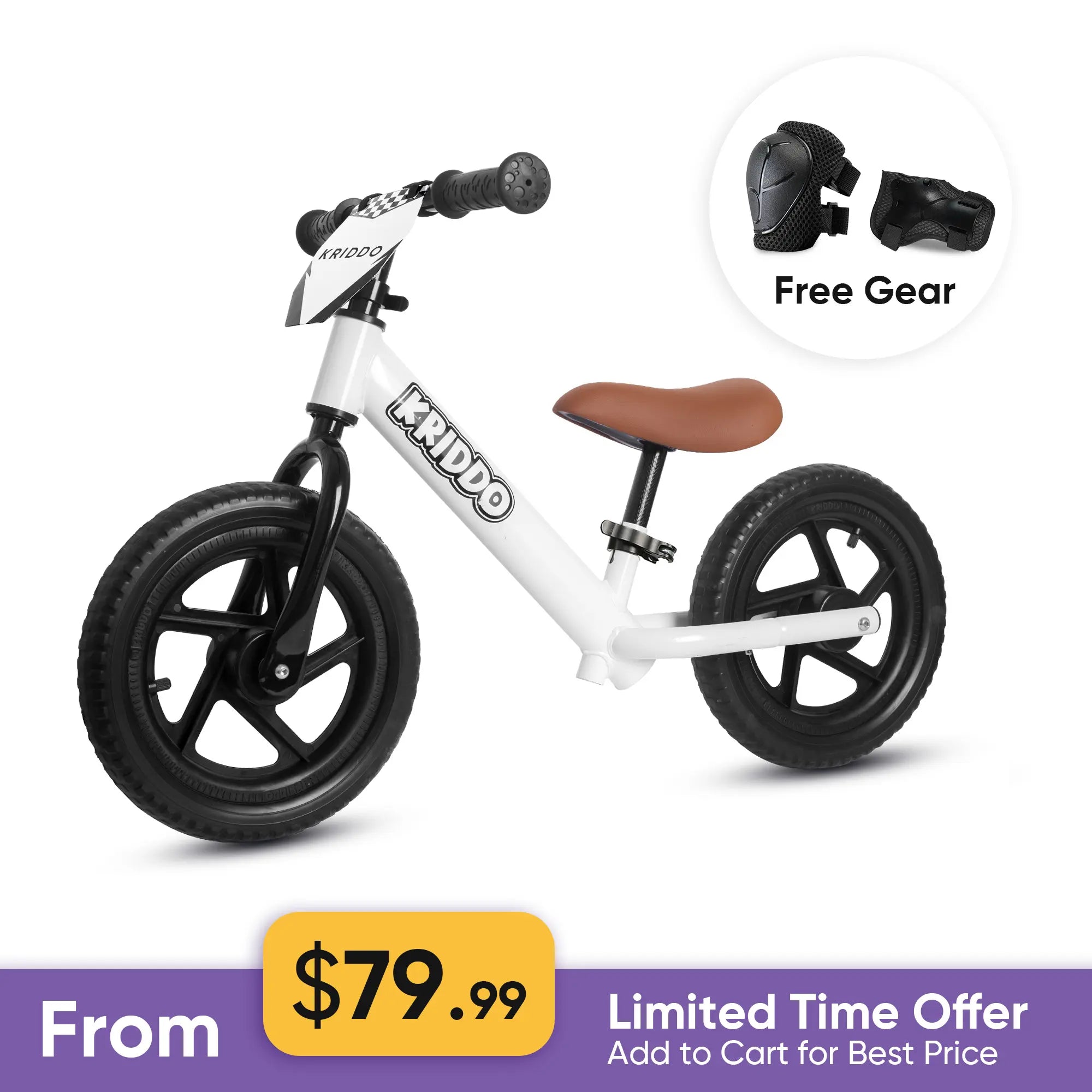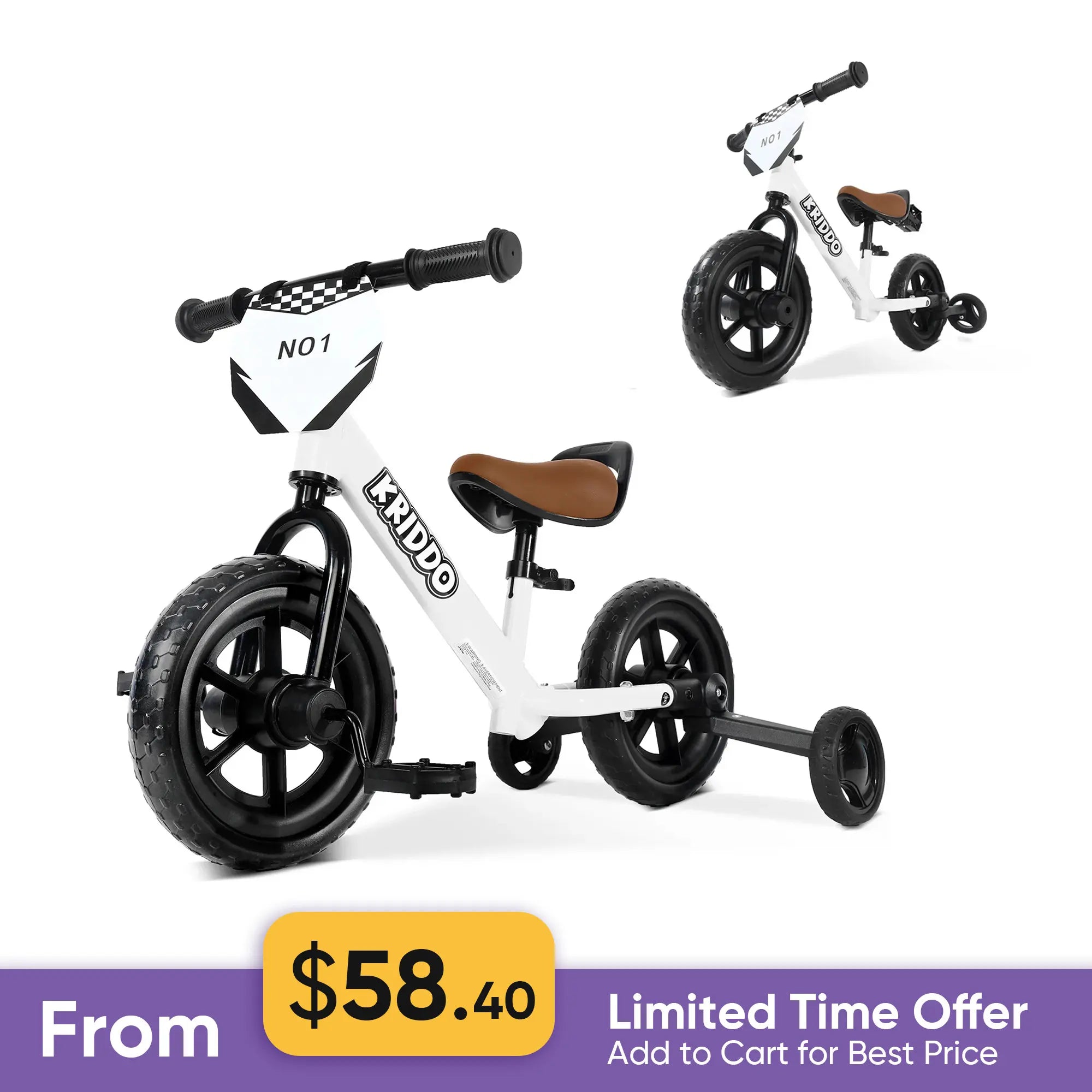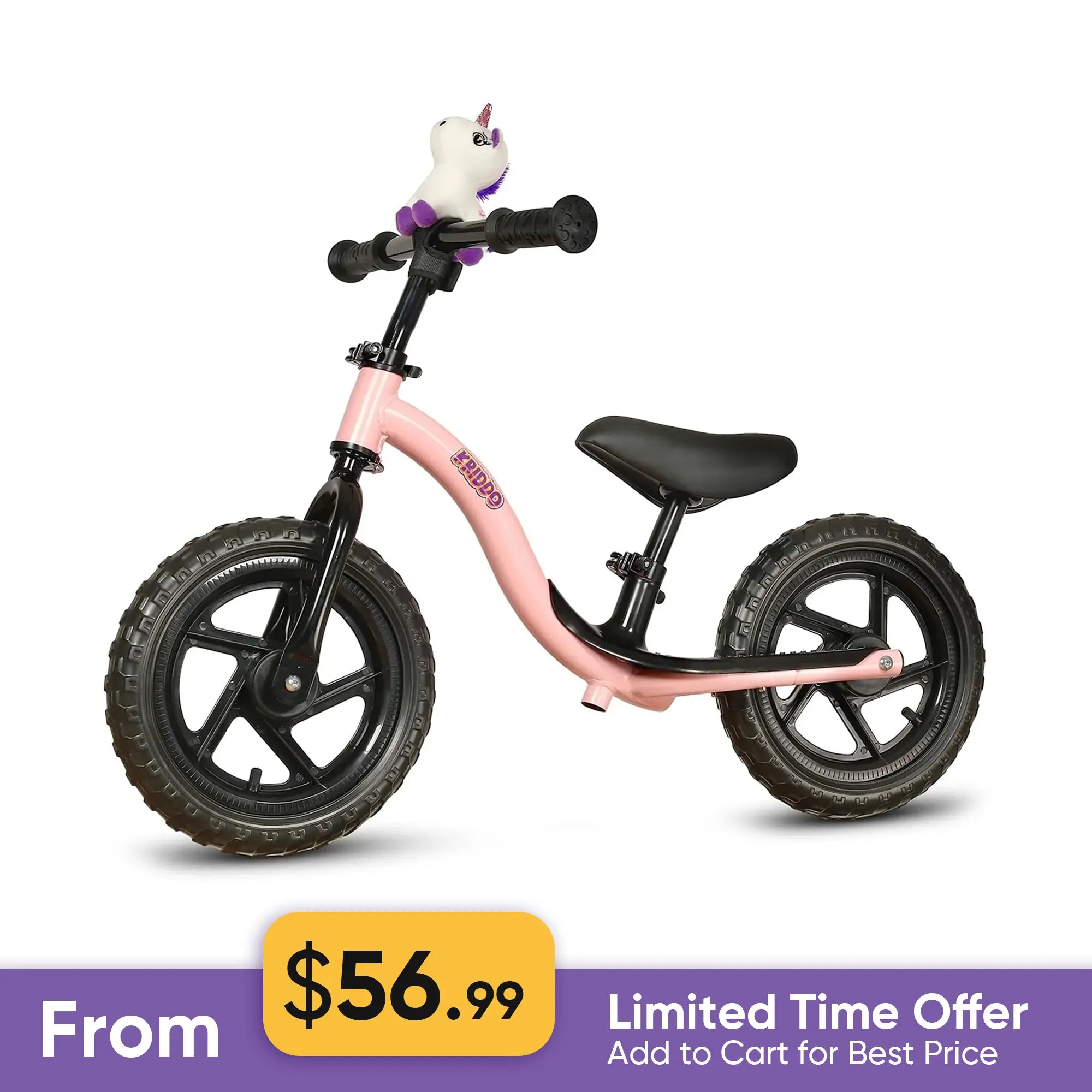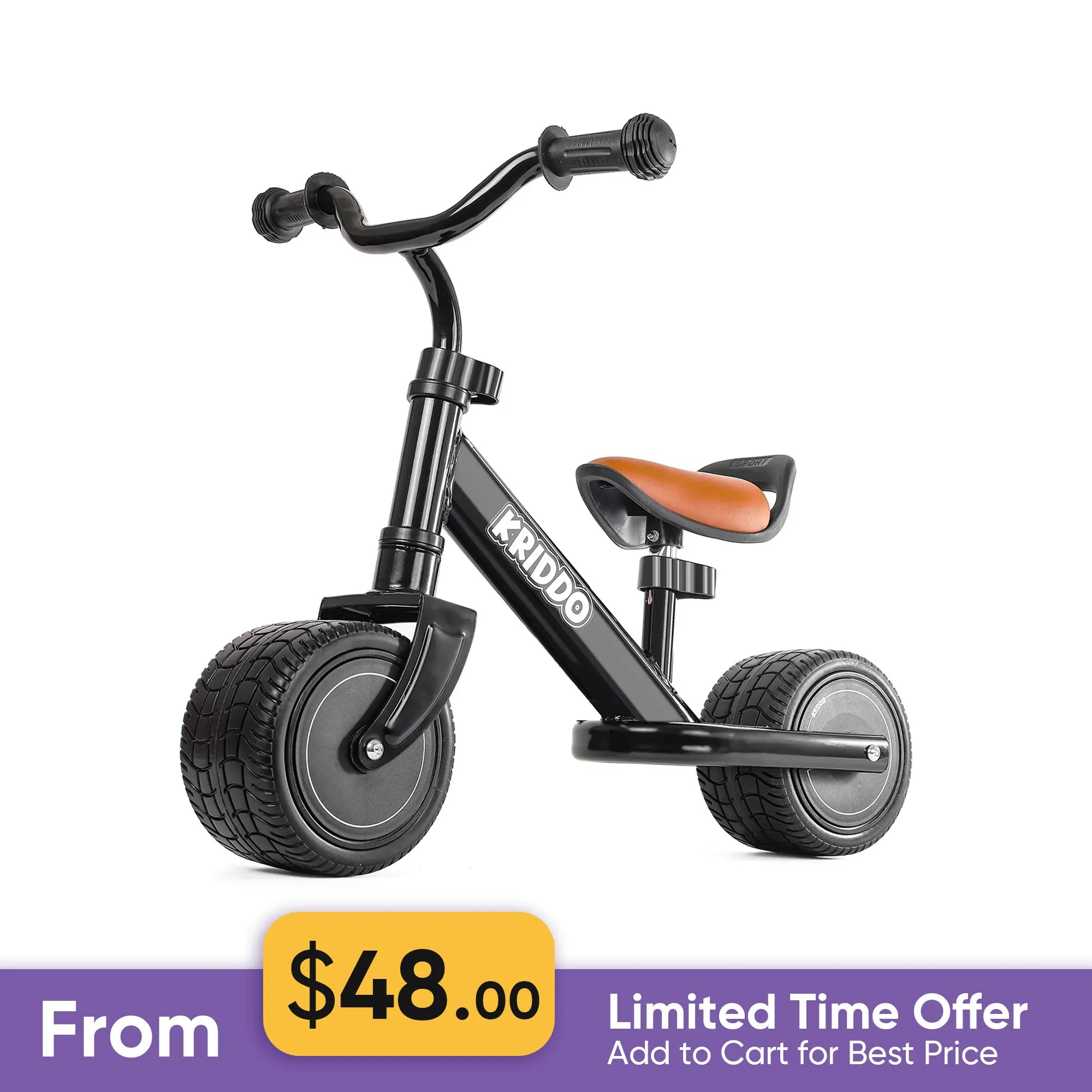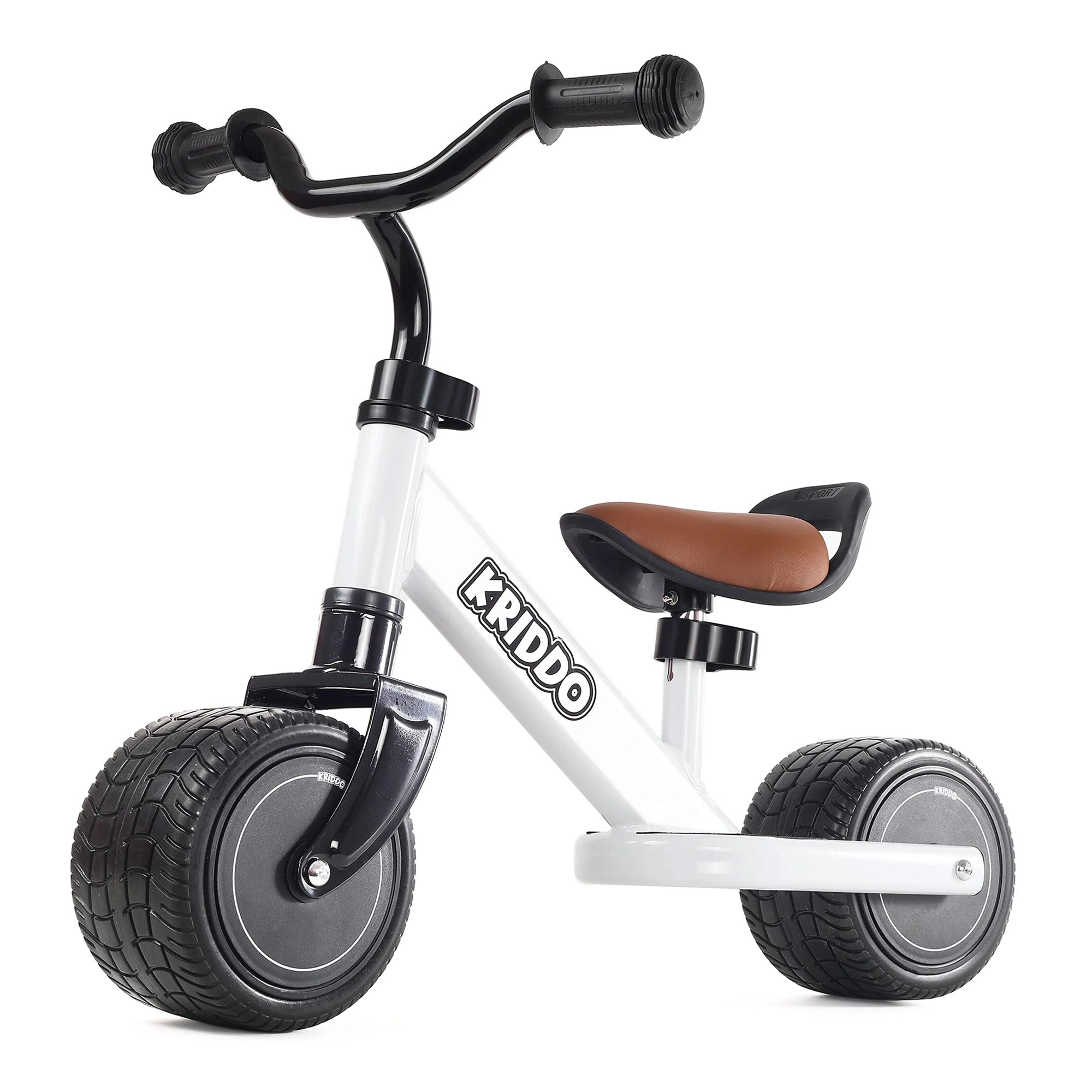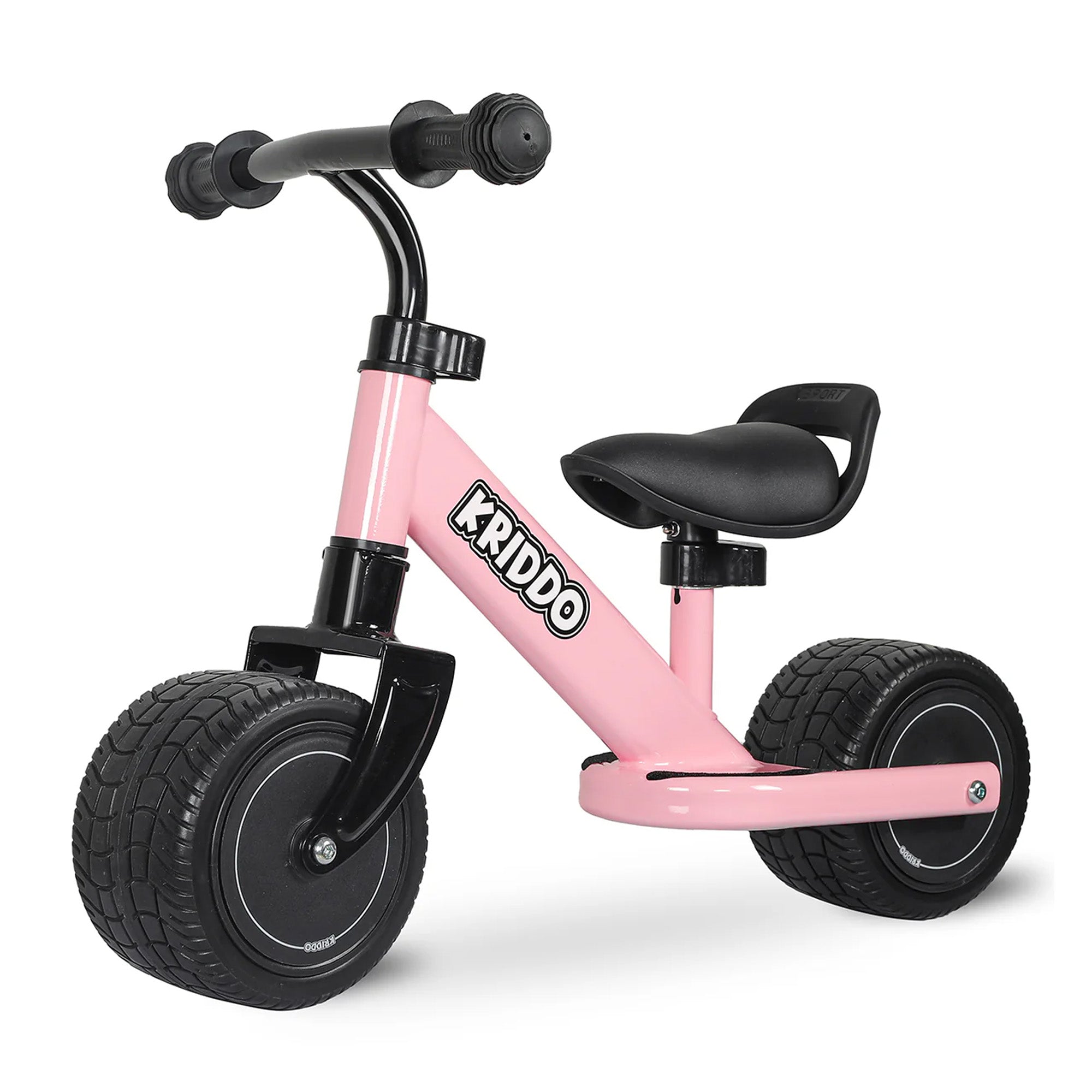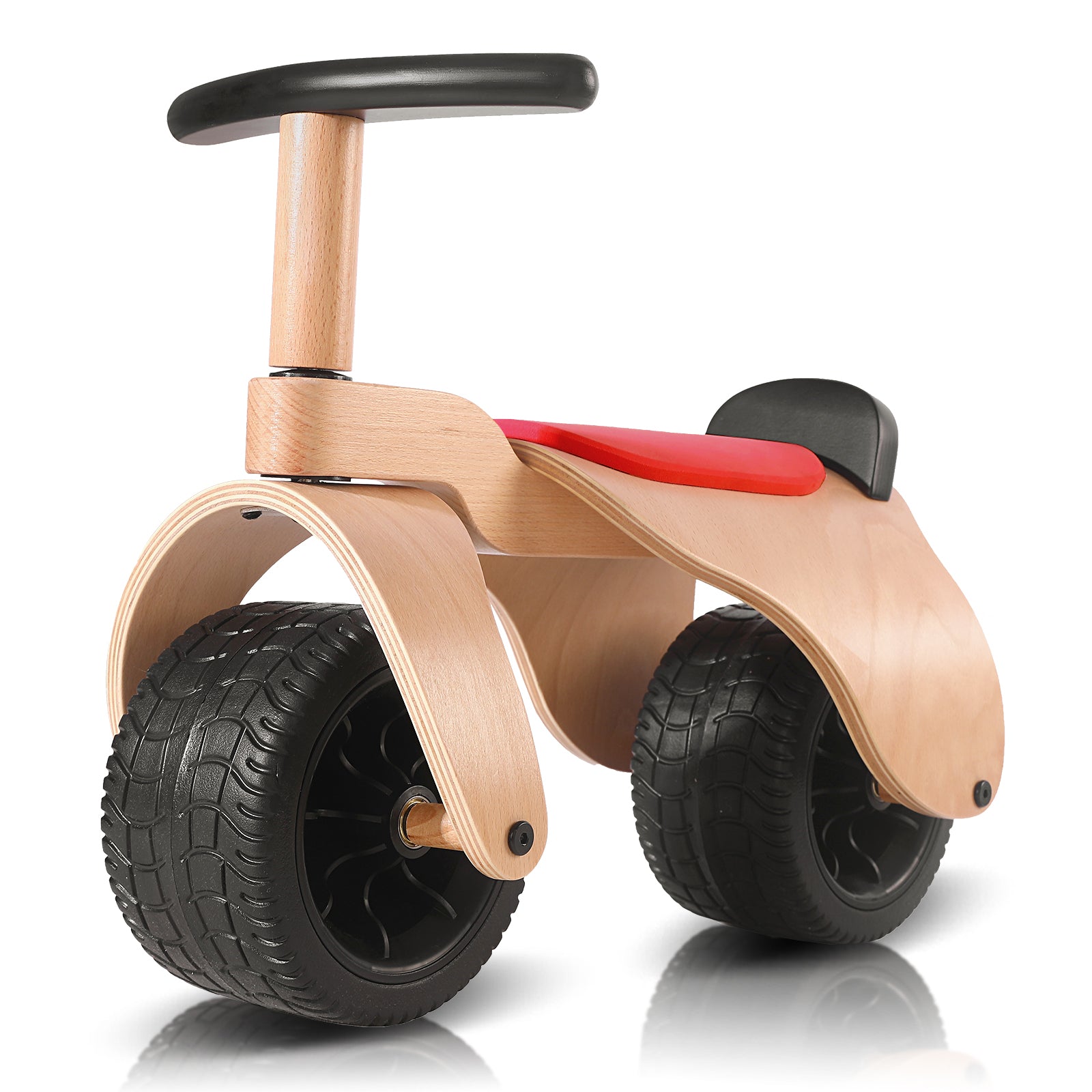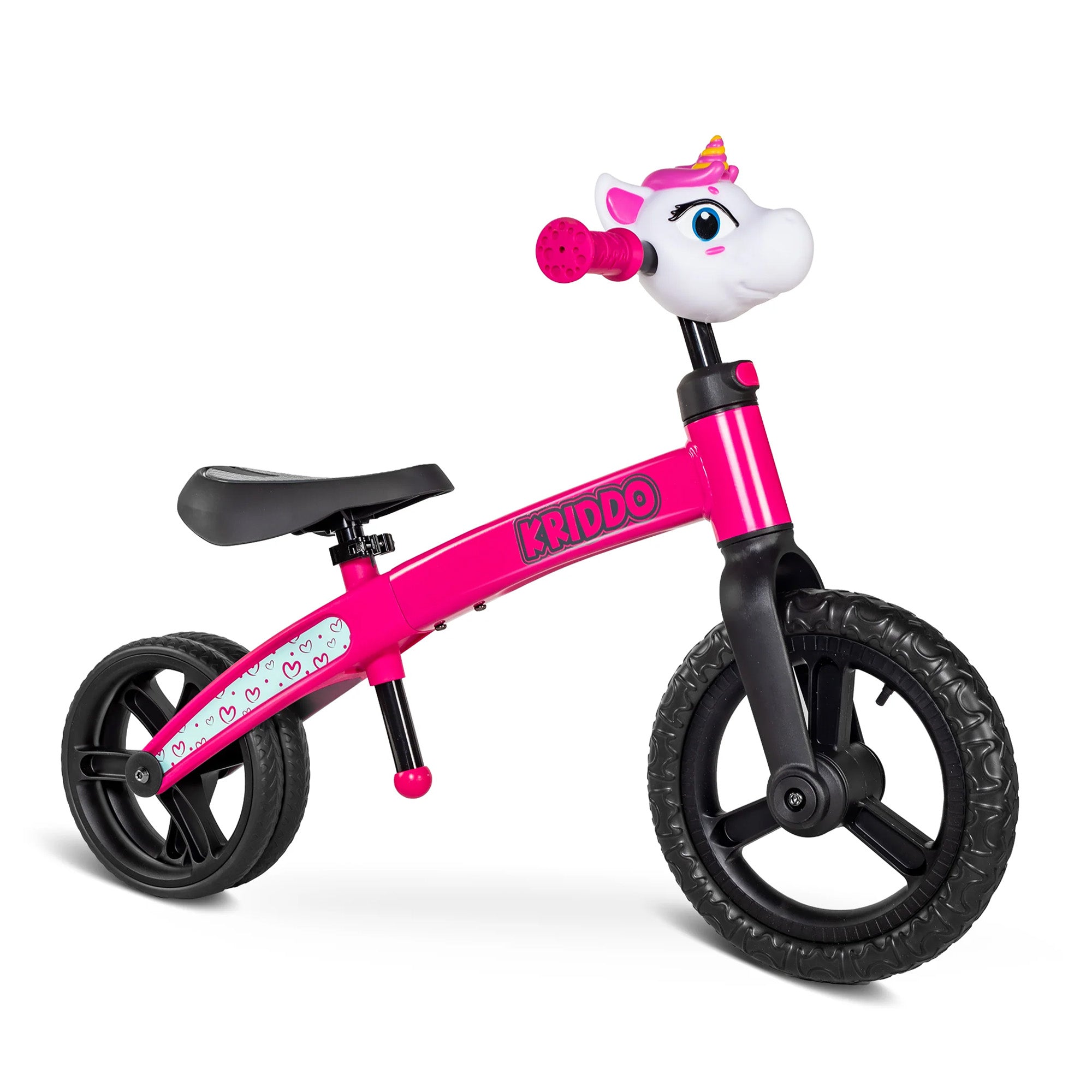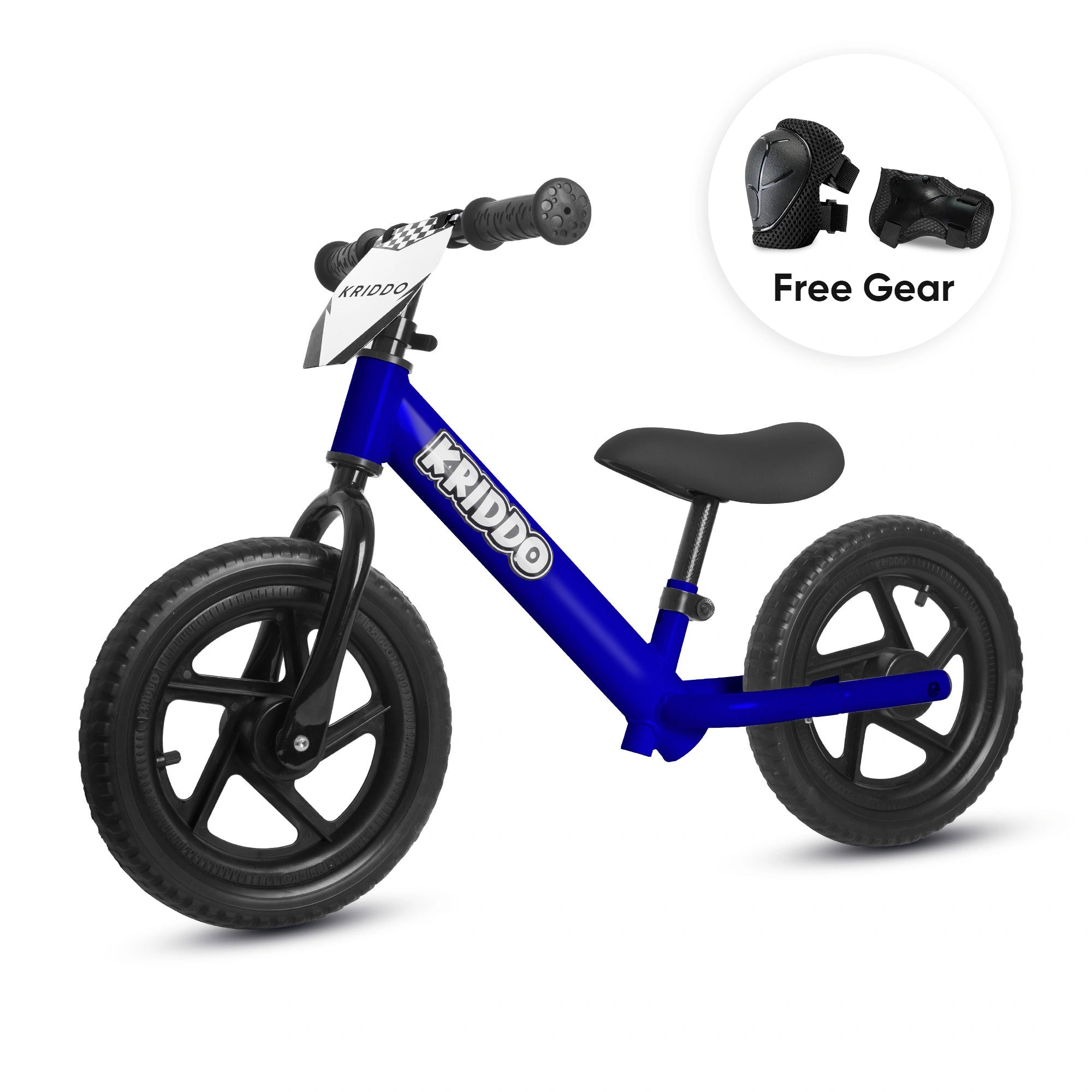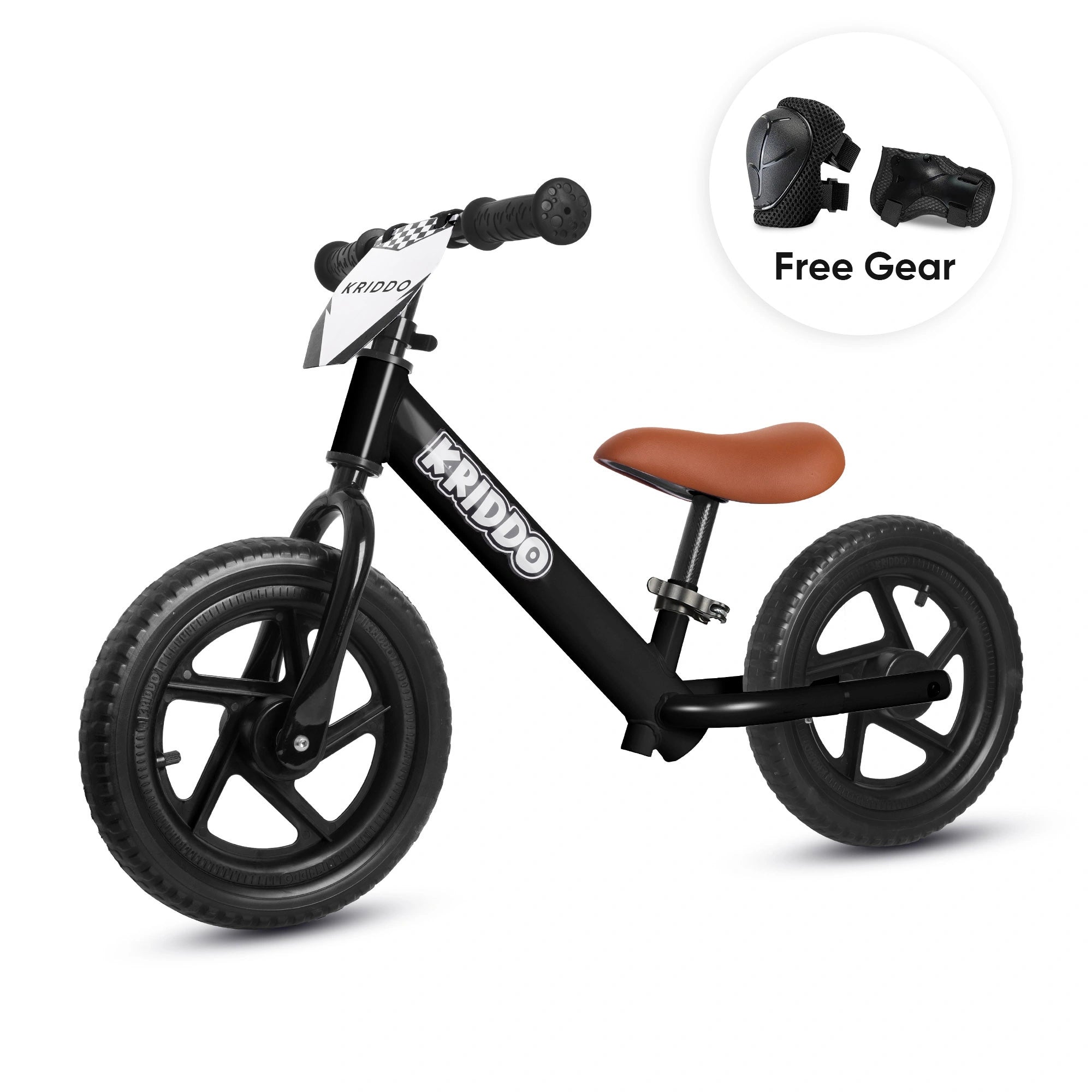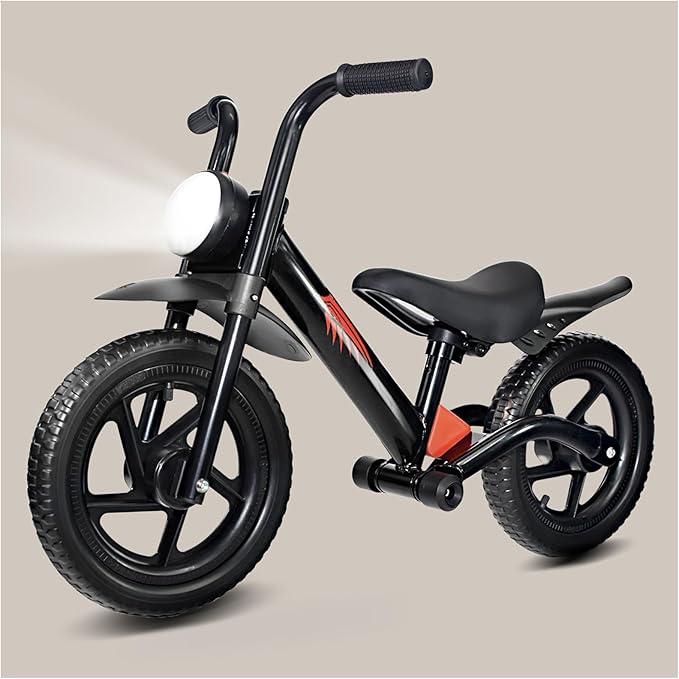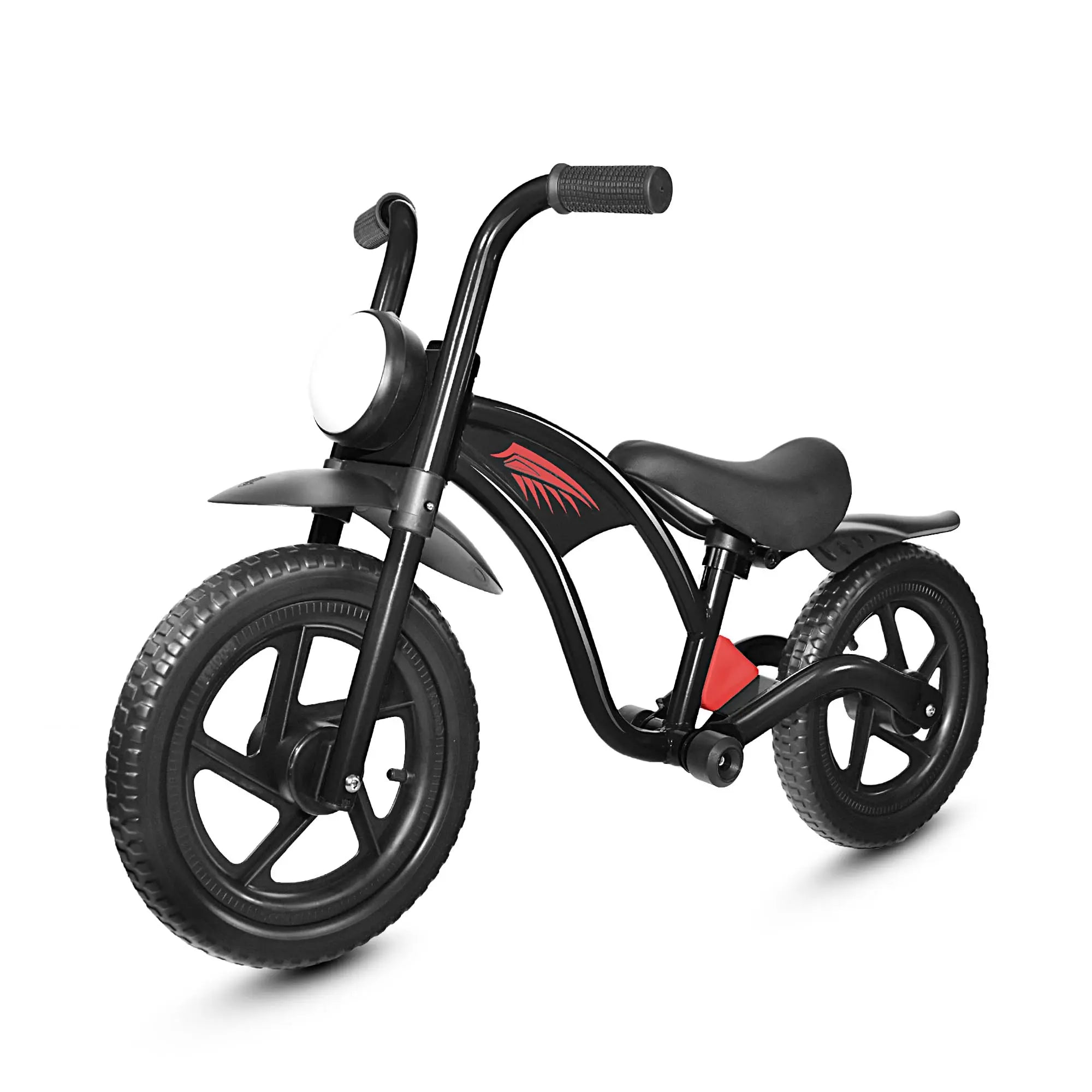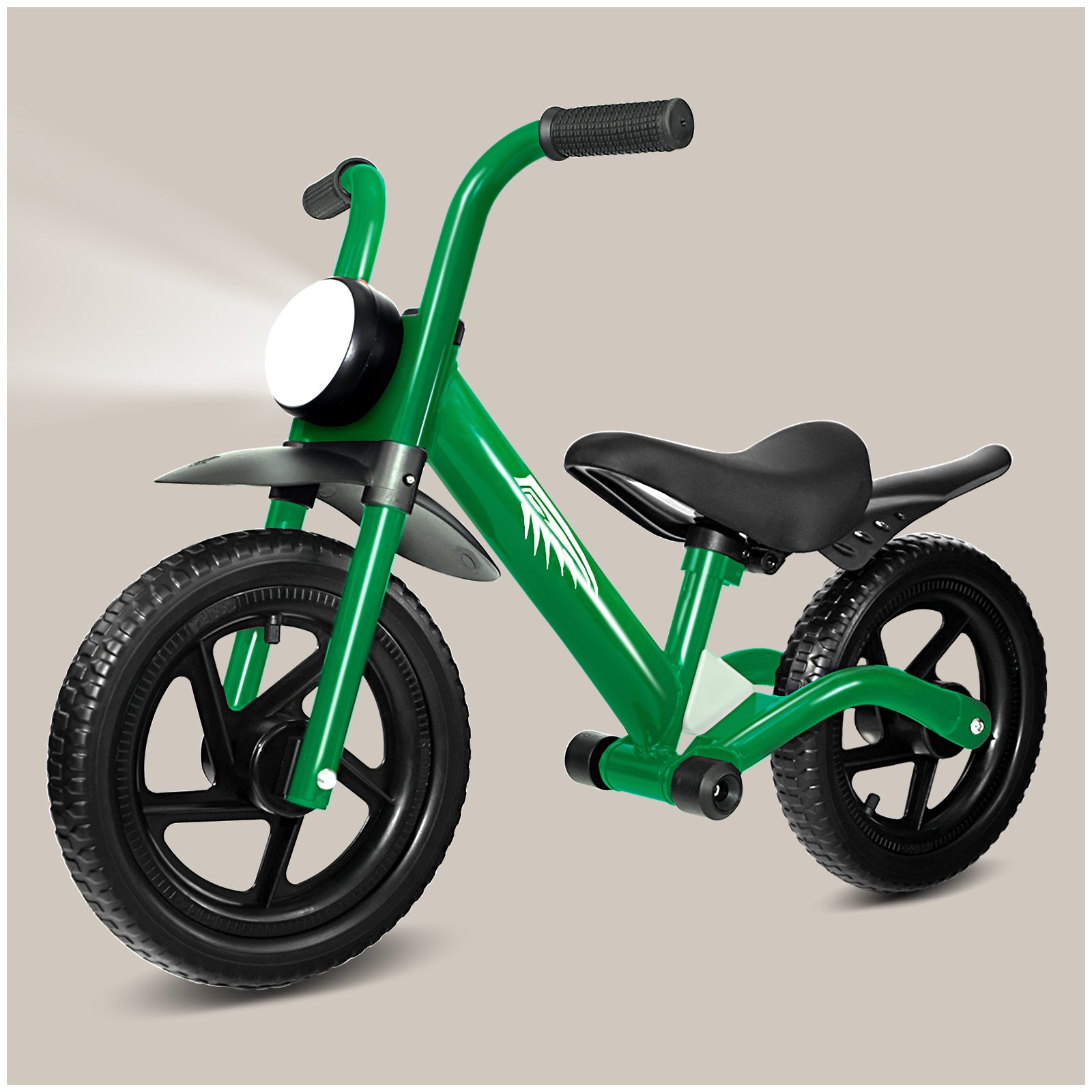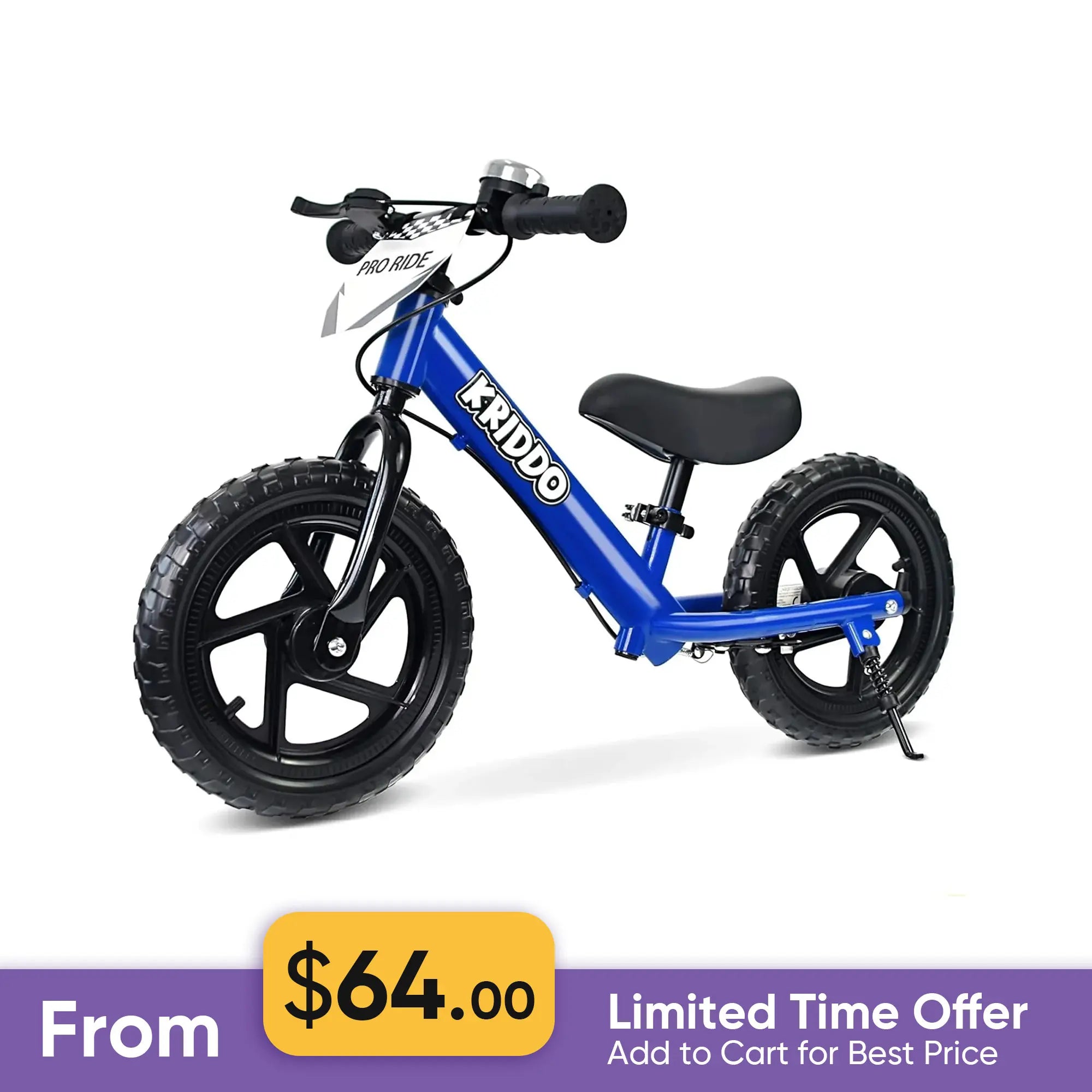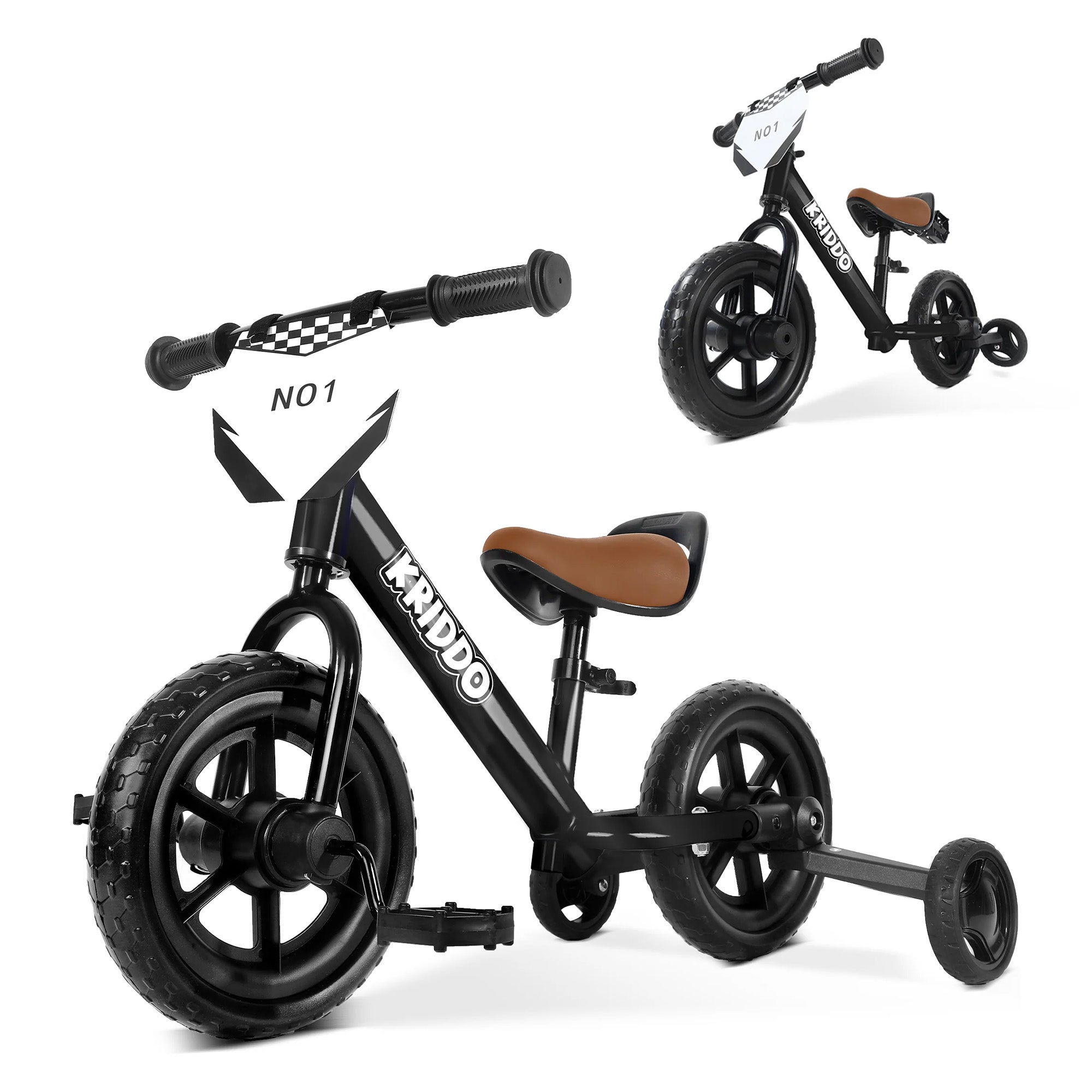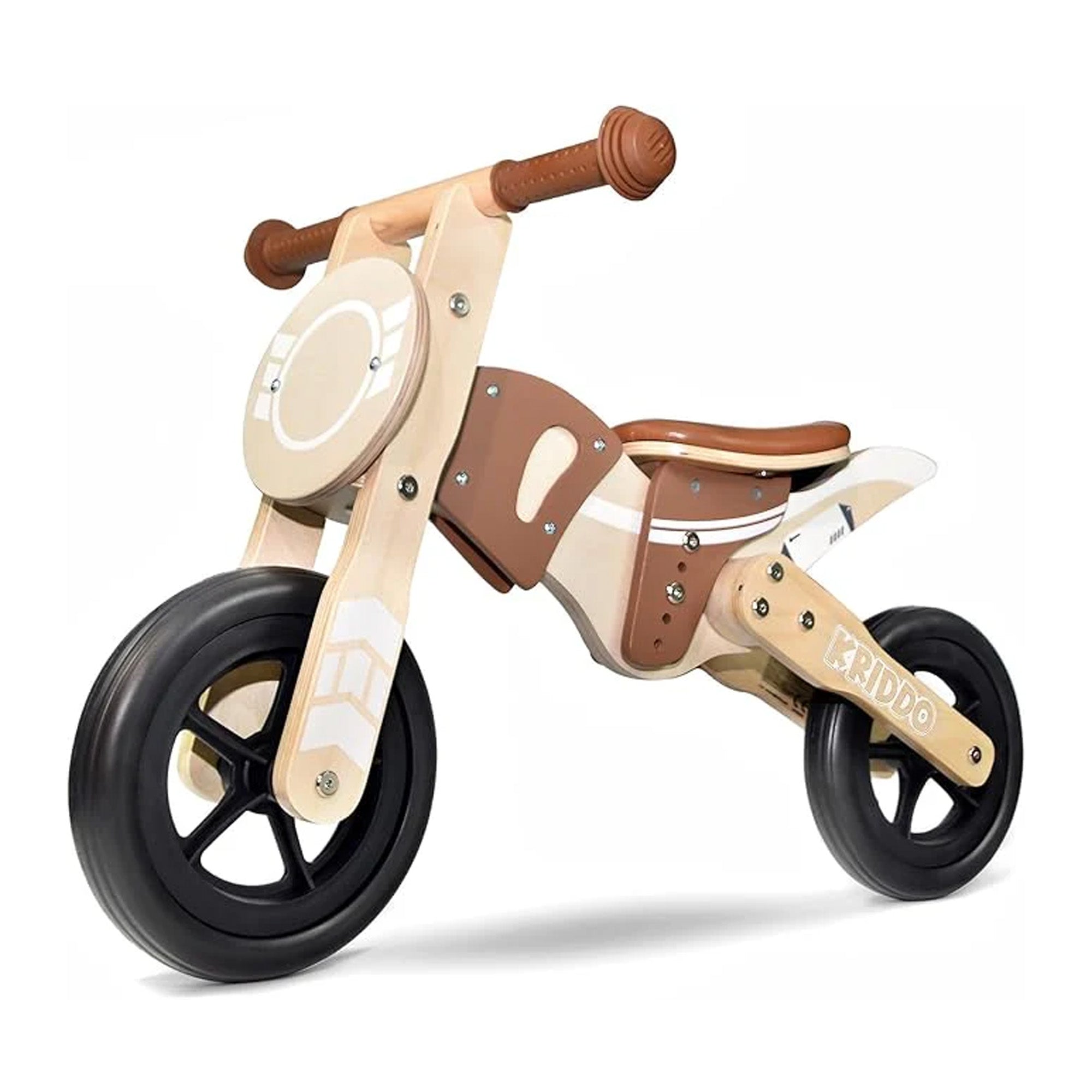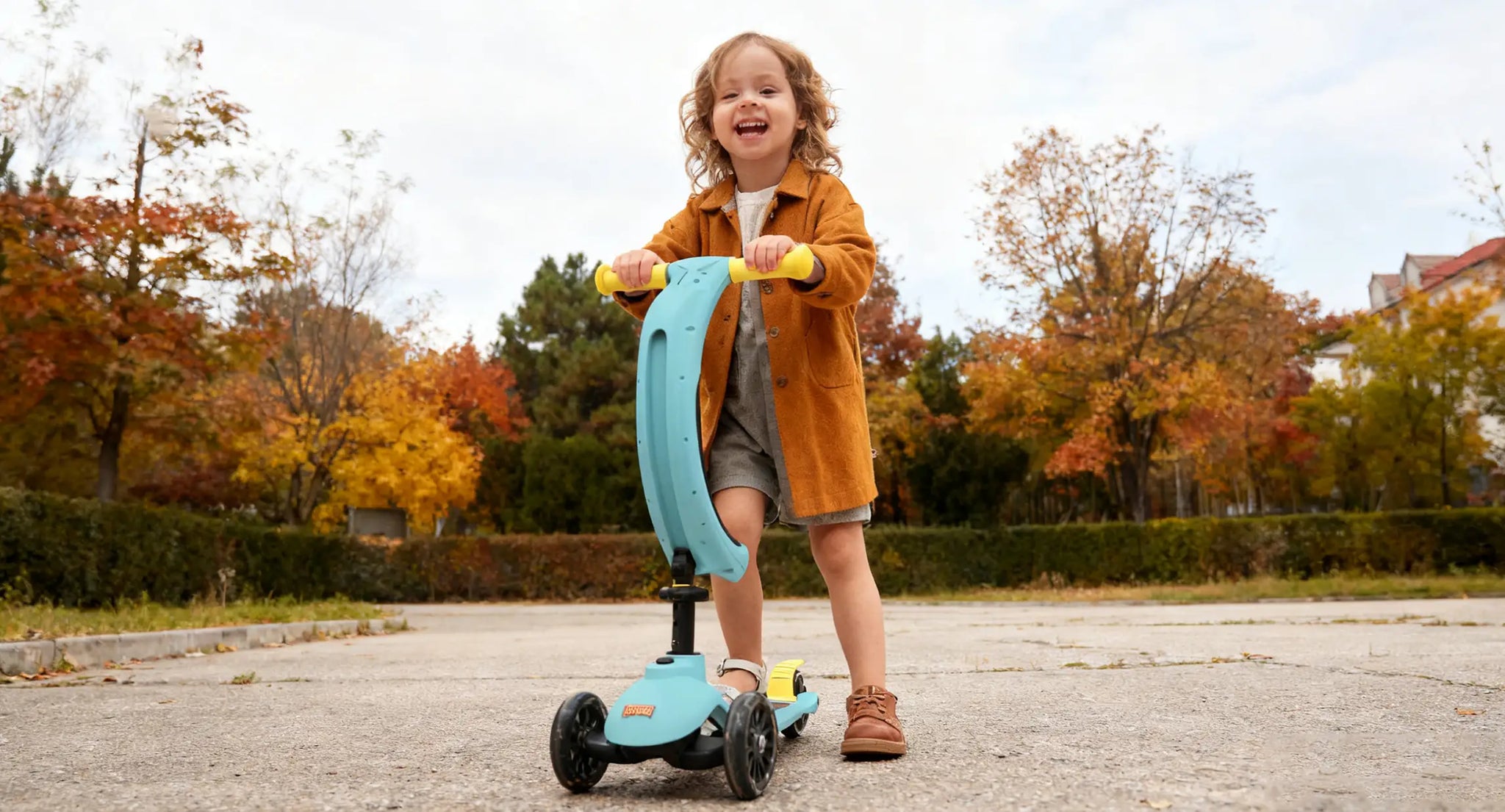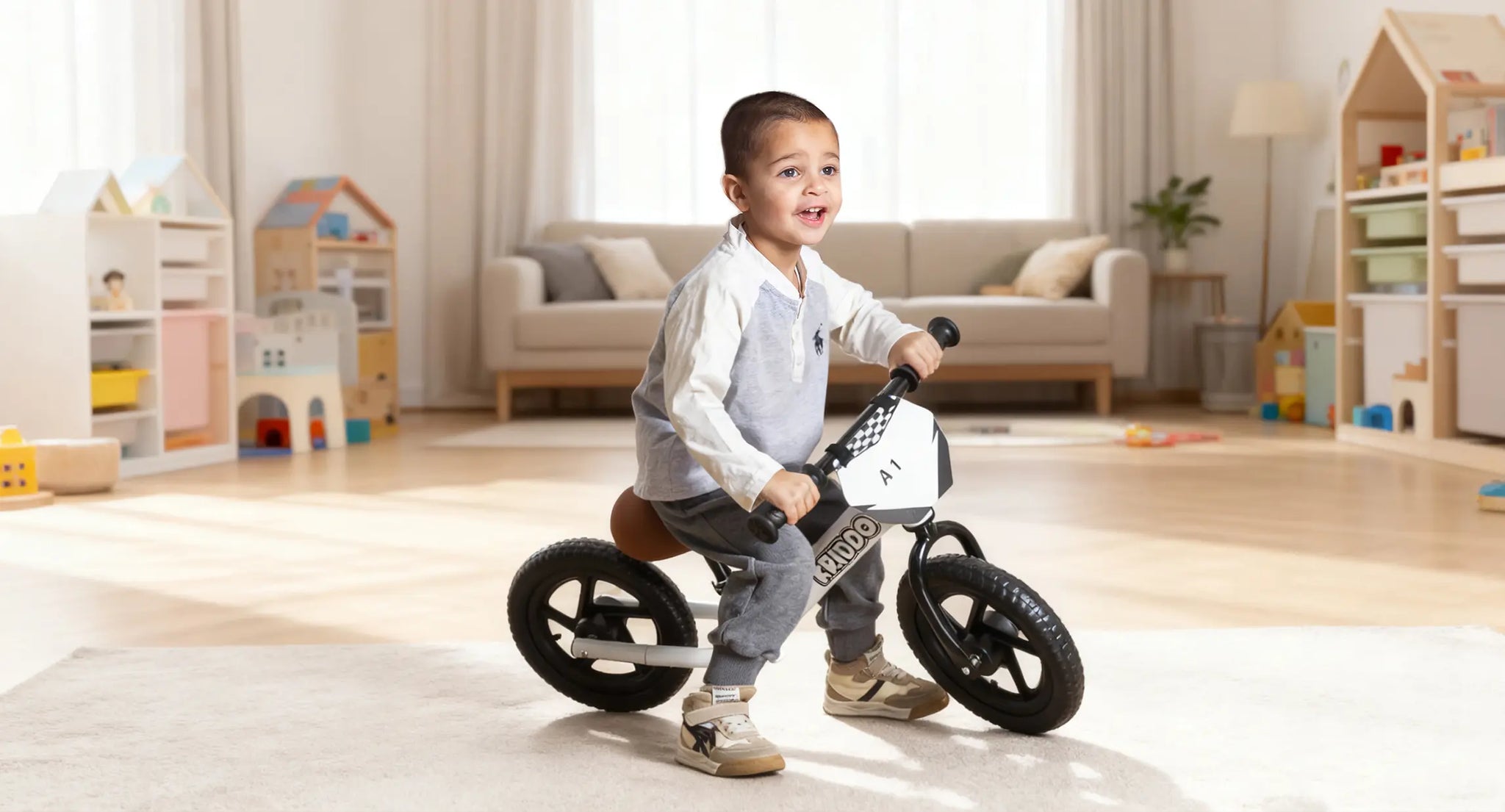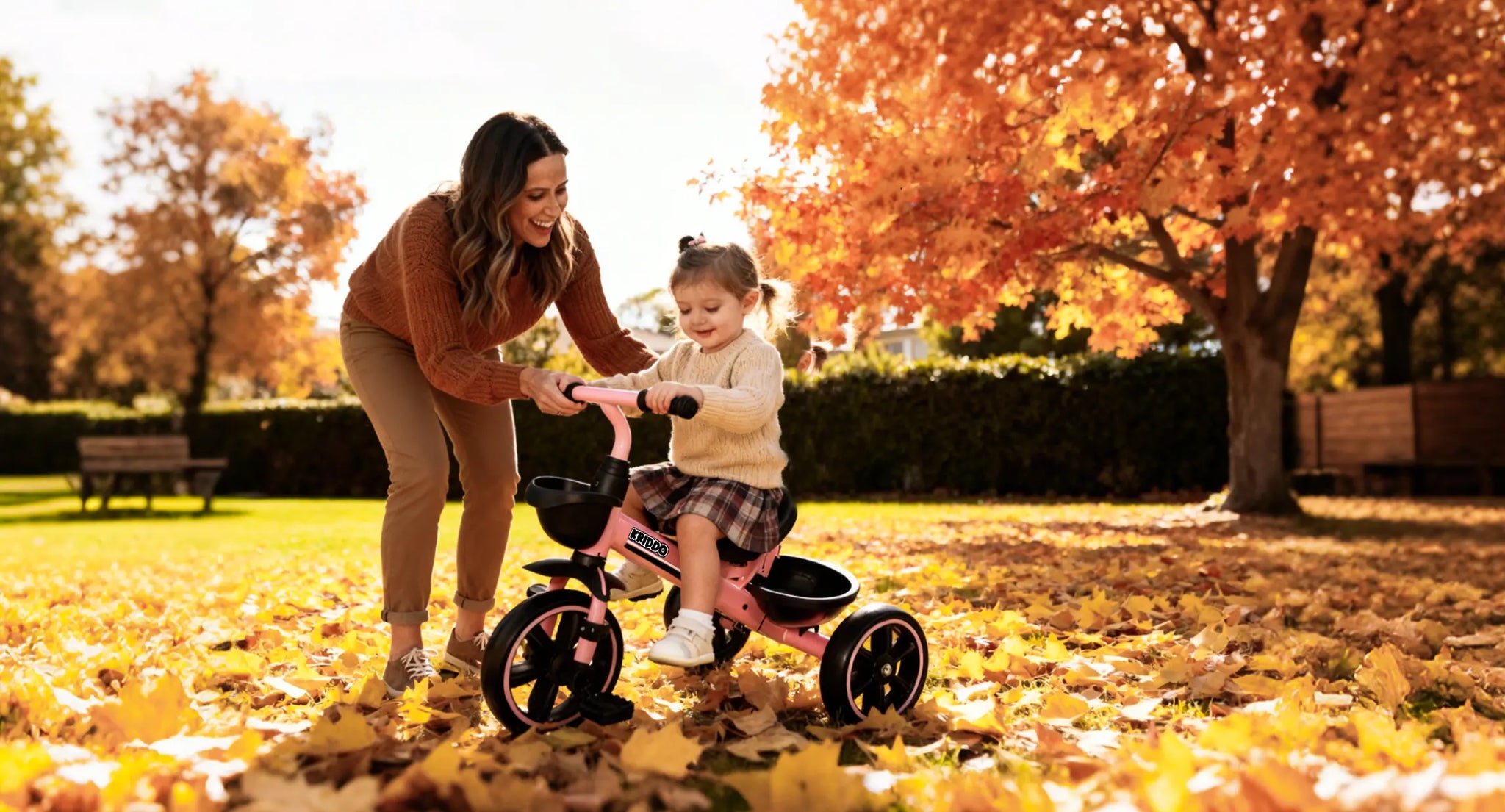Ride On Toys For 2 Year Olds: A Parent’s Guide to Tiny Journeys
Julia | 27th, Coco
Summary
Balance Bike
- Balance Bike: One of the Best Ride-On Toys for 2-Year-Olds
- Why your 2-year-old needs a balance bike
- Best balance bike recommendation
- Taking balance bikes beyond “just riding”
Tricycle
- Tricycles: A Classic Choice of Ride On Toys For 2 Year Olds
- Different Types of Tricycles for Toddlers
- Balance Bike or Tricycle: Which Ride On Toy Fits Your 2 Year Old Best?
- A recommended tricycle for toddlers
Scooter
- Scooters: Exciting Ride On Toys For Toddlers Who Love to Move
- 2-wheel or 3-wheel scooter?
- Recommended toddler scooter
- Practical tips for parents
Wrapping it all together
There’s a special kind of magic in watching a two-year-old take their first ride. The wobbles, the wide-eyed grin, the sudden burst of “I did it!”—these are more than cute moments. They’re the first signs of independence. And that’s why a balance bike is one of the best ride-on toy birthday gift choices for 2-year-olds : they’re not just about fun, they’re about growth, confidence, and tiny adventures on wheels.
So, what kind of ride should your toddler start with? Parents usually wonder about three favorites: the balance bike, the tricycle, and the scooter. Let’s start with the one that’s changing the way toddlers learn to ride.
Balance Bike: One of the Best Ride-On Toys for 2-Year-Olds

A balance bike looks simple—just two wheels, a seat, and handlebars. But don’t be fooled. This little ride is one of the best ways for toddlers to develop gross motor skills: pushing with their legs builds strength, steering sharpens coordination, and staying upright trains balance. In short, it’s a full-body workout disguised as play.
And here’s the beauty: because there are no pedals, kids focus entirely on balance first. That means when it’s time for a “real” bicycle, they already have the hardest part mastered.
Why your 2-year-old needs a balance bike

Of all the options out there, the balance bike has become one of the most talked-about and loved Ride On Toys For 2 year olds. If you’re unfamiliar, a balance bike is basically a mini-bicycle with no pedals. Kids straddle the seat, push themselves forward with their feet, and learn to balance naturally . So, why does your 2-year-old need one?
The simplicity of the design is exactly what makes it so effective. Instead of juggling pedaling and balancing at once, toddlers can focus on just one thing: staying upright. And once they master that, moving to a real pedal bike becomes almost seamless.
It prepares them for cycling
Riding a bike is a milestone every child looks forward to, but it can also feel intimidating. A balance bike gives toddlers a head start, teaching them balance and steering long before they ever touch pedals. That way, when it’s time for a “big kid” bike, the transition is smooth, natural, and drama-free.
Confidence grows with every ride
At first, toddlers might shuffle slowly, unsure if they can really do this. But with each little glide, they feel braver. Soon enough, they’re zooming past, shouting with excitement, and looking back to see if you noticed. That sense of “I did it!” is priceless.
It builds gross motor skills in real time
Every ride works the muscles that matter most—legs, arms, and core. It’s like a workout session designed for toddlers, only with way more fun.
It encourages healthy exercise
In a world where screens grab so much attention, a balance bike is a gentle nudge toward the outdoors. It gets toddlers moving, breathing fresh air, and building a love for active play early on.
It nurtures independence
There’s something powerful about a child realizing they can move on their own terms. On a balance bike, toddlers decide their pace, their direction, their journey. That sense of autonomy is as important as the physical skills they’re building.
Best balance bike recommendation
It’s sturdy, fun, and designed with toddlers in mind. Think of it as a reliable little adventure buddy, always ready for the next ride. And if you’d like to learn more, check out our 2025 Best Balance Bike Guide.
Taking balance bikes beyond “just riding”

One of the best things about balance bikes is how versatile they are. They don’t just teach balance—they open doors to all kinds of play.
Family trips made easier
Bringing a lightweight balance bike on a family trip means your toddler doesn’t get tired walking long stretches. Instead, they glide alongside you, keeping up with the pace while enjoying the scenery. It makes outings smoother for parents and way more fun for kids.
Friendly little races
Hosting a Balance Bike Race with neighborhood toddlers is a safe, exciting way to build confidence. The point isn’t winning—it’s about practicing skills in a playful, social setting.
Creative games at home
Parents can set up simple obstacle courses or play “who can reach the finish line first.” These fun balance bike activities aren’t just entertaining—they sharpen reaction speed, focus, and problem-solving.
With a little imagination, a balance bike becomes more than a toy. It becomes a tool for bonding, learning, and laughter.
The hidden emotional value
Let’s not underestimate the emotional side. Imagine being two years old, feeling the thrill of speed for the very first time. Imagine the pride of moving forward without help, the giggles when you almost tip but catch yourself, the way you glance back to see your parents cheering.
That’s what a balance bike gives—a mix of freedom and security, joy and growth. And those moments? They stick.
Tricycles: A Classic Choice of Ride On Toys For 2 Year Olds

If balance bikes are the new stars of the toddler world, then tricycles are the trusted classics that never go out of style. Many parents grew up with one themselves, and there’s something nostalgic about watching your child pedal a little three-wheeler across the yard. But nostalgia aside, a tricycle is still one of the best Ride On Toys For 2 year olds, offering stability, safety, and hours of straightforward fun.
For toddlers who aren’t quite ready to balance on two wheels, a trike is a wonderful option. It gives them the thrill of riding without the anxiety of tipping over. And for some children—especially the more cautious ones—that security makes all the difference, helping them gain confidence and quickly get the hang of riding a tricycle.
Different Types of Tricycles for Toddlers
Not all tricycles are the same. Depending on your child’s needs and your parenting style, you can choose from a few different types.
Classic tricycles
The classic tricycle is probably the one that comes to mind first: sturdy, three wheels, one seat, and a simple handlebar.
Why parents love them:
They’re low to the ground, making them stable and safe
The pedaling motion teaches toddlers how to push forward with their legs
They usually come with a small basket or platform, perfect for carrying toys around
These are especially great for indoor or backyard play, where the smooth surface makes pedaling easier.
Push tricycles
For parents who like a little more control, the tricycle with handle is a clever choice. These models come with a parent push bar at the back, letting you steer or push when your child gets tired—or decides they’d rather relax.
Why it’s smart:
You can guide your toddler in busy areas
Kids can still learn pedaling gradually
As they grow stronger, the handle becomes less necessary
It’s a kind of safety net: independence when they want it, help when they need it.
Tricycle strollers
The hybrid model, known as the tricycle stroller, combines two essentials: a stroller and a trike.
Why parents find them practical:
Adjustable seating and safety harnesses for very young toddlers
Can be used in stroller mode when kids are too small to pedal
Switches to trike mode as the child grows
This type of tricycle is especially useful for parents who don’t want to buy both a stroller and a trike separately. It’s cost-efficient and space-saving, which matters a lot for busy families.
Balance Bike or Tricycle: Which Ride On Toy Fits Your 2 Year Old Best?
Now comes the classic parenting dilemma: do you go for a tricycle or a balance bike? Both have their strengths, and it’s easy to feel torn. The good news? You can’t really go wrong with either.
Balance bike advantages
Promotes balance and coordination naturally
Helps kids transition quickly to pedal bikes
Lightweight and easy to carry
Can take longer for a child to get comfortable at first
Downsides
Can take longer for a child to get comfortable at first
Often more expensive than trikes
Needs more storage space
Tricycle advantages:
Provides instant stability—no tipping worries
Easy for beginners to hop on and pedal
Usually more affordable
Downsides:
Doesn’t prepare kids for balancing on two wheels
Bulky and harder to maneuver indoors
Limited age range (often outgrown by age three or four)
So which is better?
Honestly, it depends on your child. Adventurous toddlers who don’t mind falling a few times may thrive on a balance bike, while more cautious little ones might prefer the steady comfort of a trike. Some parents even choose both: a trike for everyday play and a balance bike for learning balance outdoors.
The key is to think about your child’s personality. Do they crave independence and speed? Or do they prefer slow and steady rides? Whichever you choose, the important thing is that they’re moving, practicing, and enjoying themselves.
A recommended tricycle for toddlers
What makes it especially appealing is its flexibility. At 18 months, your toddler can ride with your guidance. By three, they’ll be pedaling on their own, confident and strong. It’s a ride that adapts as your child grows—a worthy investment for those early years.Check out our 2025 tricycle guide for even more great options to choose from.
Tricycles and Their Special Role

It’s easy to dismiss trikes as “simpler” compared to balance bikes. But the truth is, they teach important lessons too. Pedaling strengthens leg muscles in ways that pushing a balance bike doesn’t. The steady motion builds patience and rhythm. And because trikes are so stable, they give toddlers a safe environment to practice before they’re ready for more challenging toys.
In short: tricycles aren’t just a fallback for kids who can’t balance yet. They’re their own kind of developmental tool, with unique benefits that balance bikes don’t provide.
Where this fits in the bigger picture
At this point, we’ve seen how balance bikes and tricycles both have their place. One focuses on coordination and future cycling, the other on stability and simple joy. Together, they cover a wide range of skills and experiences.
And here’s the thing: there’s no rule saying you can only choose one. Some families buy both, letting their toddlers switch depending on mood or environment. One day it’s the steady trike in the driveway, the next it’s the balance bike in the park. Variety, after all, keeps playtime exciting.
Scooters: Exciting Ride On Toys For Toddlers Who Love to Move

We’ve talked about balance bikes and tricycles, but let’s not forget scooters. For many toddlers, scooters feel thrilling because they’re a little different—standing instead of sitting, pushing off the ground instead of pedaling. They’re fast, fun, and just challenging enough to make kids feel like they’re doing something “big kid” worthy.
Unlike the scooters older kids use, toddler scooters are specifically designed with stability in mind. Many come with three or even four wheels, giving little riders the extra support they need as they learn. That makes them a fantastic addition to the lineup of Ride On Toys For 2 year olds.
2-wheel or 3-wheel scooter?
Parents often ask which type of scooter is better for toddlers: two wheels or three. The answer really depends on your child and where they’ll be riding
Three-wheel scooters
Provide extra stability for beginners
Easier to steer and balance
Ideal for bumpy sidewalks or park paths
Two-wheel scooters
More agile and faster
Require greater balance and coordination
Best suited for smooth, flat surfaces
One parent summed it up perfectly: the scooter you pick is as much about the ground as it is about the child. If your neighborhood has uneven pavement, three wheels will keep your toddler safer. If you have smooth driveways or indoor areas to practice, two wheels might work once they’re a bit older.
Recommended toddler scooter
One parent summed it up perfectly: the scooter you pick is as much about the ground as it is about the child. If your neighborhood has uneven pavement, three wheels will keep your toddler safer. If you have smooth driveways or indoor areas to practice, two wheels might work once they’re a bit older.
The beauty of this scooter is its adaptability. Your toddler can start by sitting and scooting with their feet, then transition to standing as they grow more confident. It’s not just one toy—it’s a ride that evolves alongside them.
Practical tips for parents

Choosing the right toy is only part of the journey. Once your toddler is rolling, you’ll want to make sure they’re safe, confident, and having fun. Here are some practical tips:
1. Safety first—always
Helmet matters: Even at two, helmets should be non-negotiable. Toddlers may be small, but falls can still hurt.
Safe surfaces: Start indoors on smooth floors or outside on flat driveways before moving to rougher terrain.
Supervision: Always keep an eye on your child, especially during the early days when they’re still learning control.
2. Start slow, build confidence
Don’t expect your toddler to master their ride immediately. Let them explore at their own pace. Sometimes they’ll walk the toy forward before attempting to ride—this is normal. Building confidence takes time, and the small wins are worth celebrating.
3. Encourage outdoor play
It’s tempting to let toddlers ride indoors, and sometimes that’s fine. But the real benefits come when they use their ride on toys outside. The open space gives them room to experiment, fall safely, and experience the joy of fresh air.
A family camp with a toddler’s balance bike or scooter can turn a simple outing into a memorable adventure. Instead of getting tired walking, they’ll happily glide along, part of the journey instead of just being carried through it.
4. Make it social
Children learn a lot from watching and interacting with peers. Hosting a small Balance Bike Race or a scooter playdate isn’t just fun—it teaches kids about sharing space, following simple rules, and cheering each other on.
5. Turn rides into games
You don’t need a race to make riding fun. Parents can set up simple fun activities like obstacle courses, “follow the leader,” or treasure hunts. These playful add-ons keep toddlers engaged and motivated, while also sharpening their coordination and focus.
6. Match the toy to your child’s personality
Cautious toddlers may prefer the stability of a tricycle or 3-wheel scooter.
Adventurous ones might thrive on a balance bike, even if they tip a few times at first.
Energetic kids will love the speed and movement of scooters.
Remember: there’s no single “right” choice. The best ride on toy is the one your child enjoys and feels confident using.
Wrapping it all together

So, what have we learned from this guide?
Balance bikes are fantastic for teaching balance, building independence, and preparing toddlers for cycling. They’re lightweight, versatile, and a favorite among many parents.
Tricycles remain classics, offering stability, easy pedaling, and comfort. They’re especially good for younger or more cautious toddlers.
Scooters bring excitement and agility, encouraging balance and coordination in a unique way.
Each type of ride on toy offers something different, and together they form a complete toolkit for toddler development. Whether it’s strengthening gross motor skills, boosting confidence, or simply bringing joy to a sunny afternoon, these toys do so much more than entertain—they help shape the foundations of movement and independence.
A final thought for parents
At age two, toddlers don’t think in terms of “developmental milestones” or “gross motor skills.” They just know the thrill of moving forward, the fun of going faster, and the joy of doing it all by themselves. That’s the real magic of Ride On Toys For 2 year olds.
As parents, we’re often caught between wanting to protect and wanting to let go. A ride on toy is a gentle way of doing both. It gives children freedom within boundaries, independence with a safety net. And those first wobbly rides? They’re more than play—they’re the beginning of a lifelong love for movement, discovery, and adventure.
So whether you choose a balance bike, a tricycle, or a scooter, you’re not just buying a toy. You’re giving your child their first taste of freedom, their first little adventure, and maybe even their first memory of what it feels like to take control and ride into the world.

